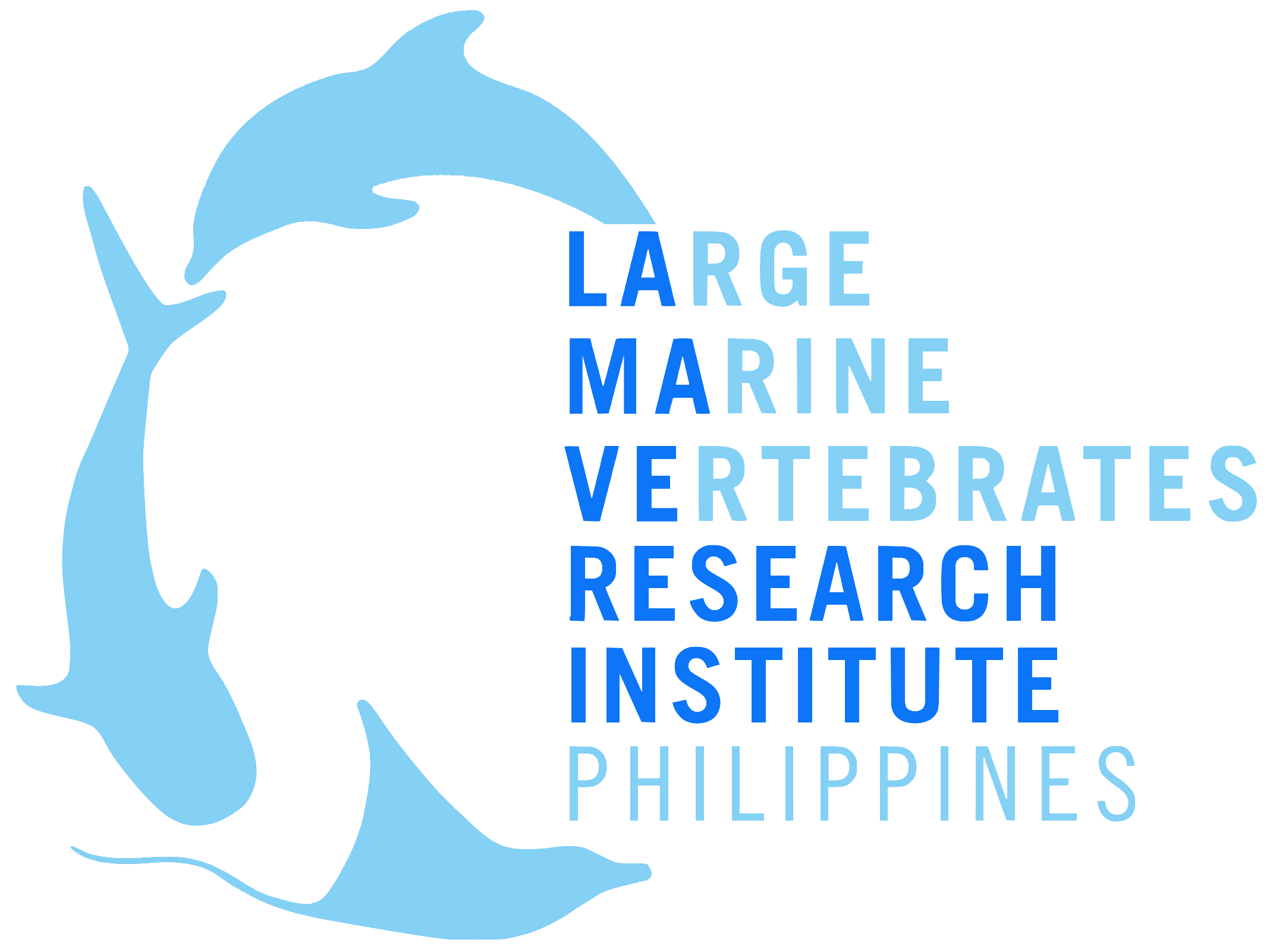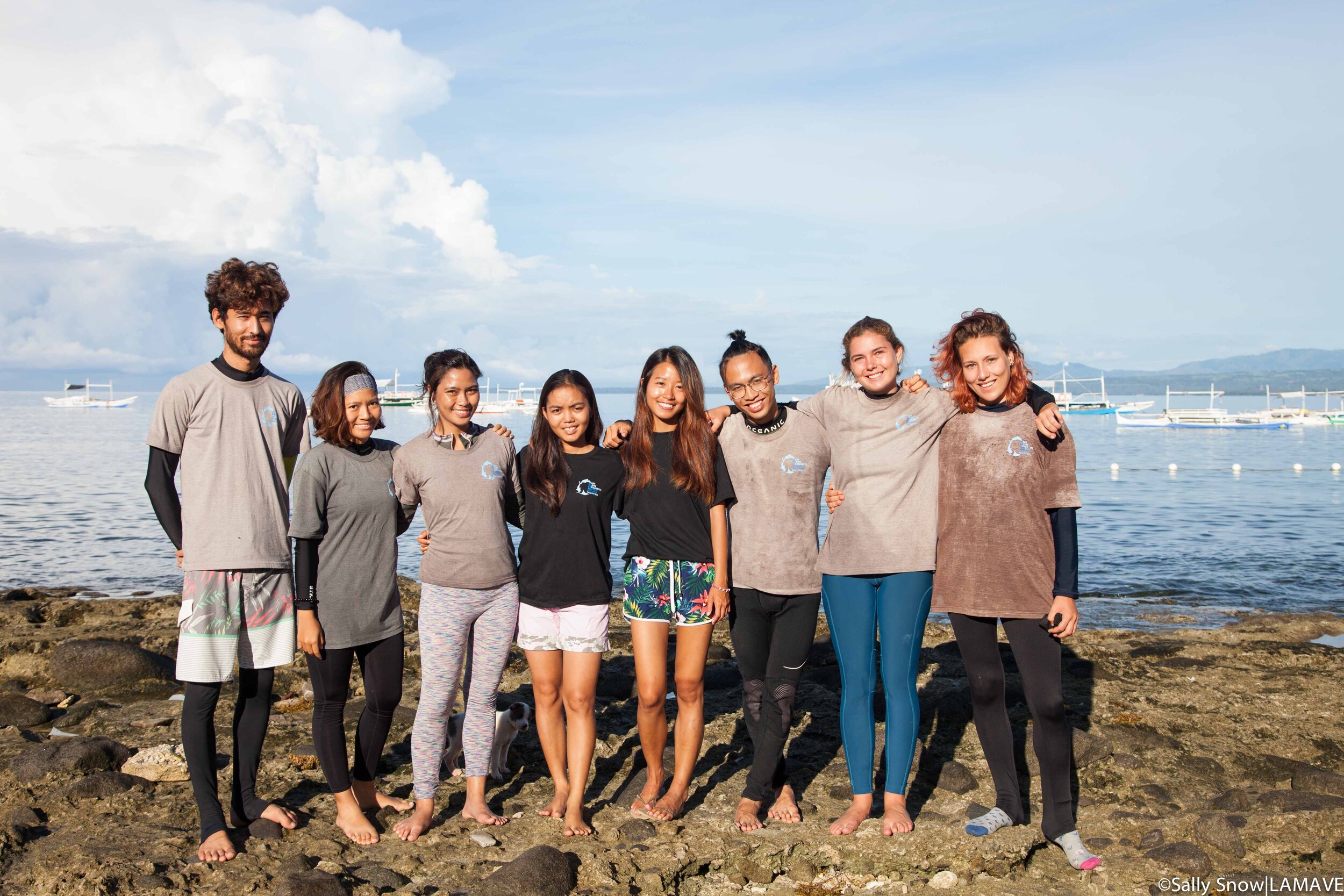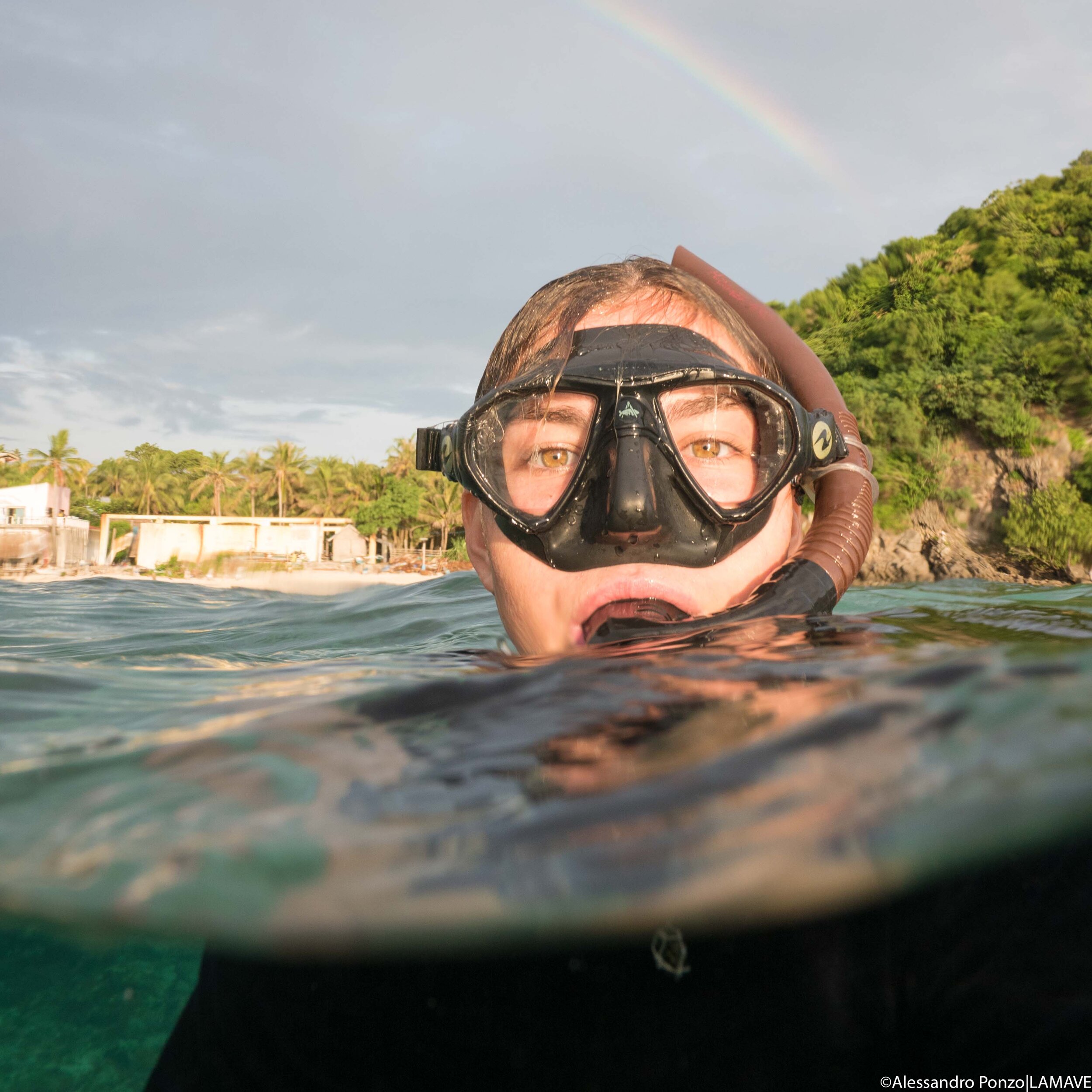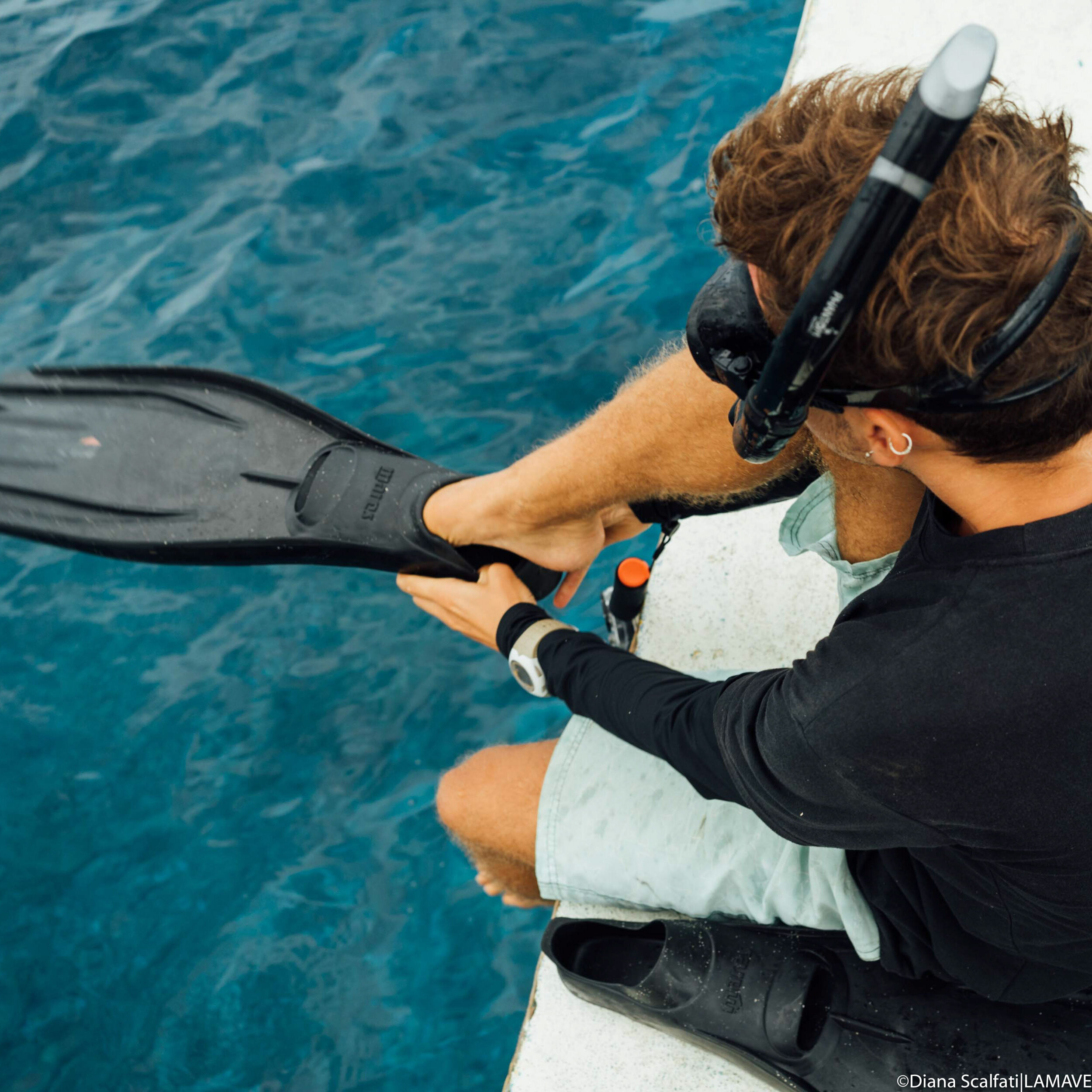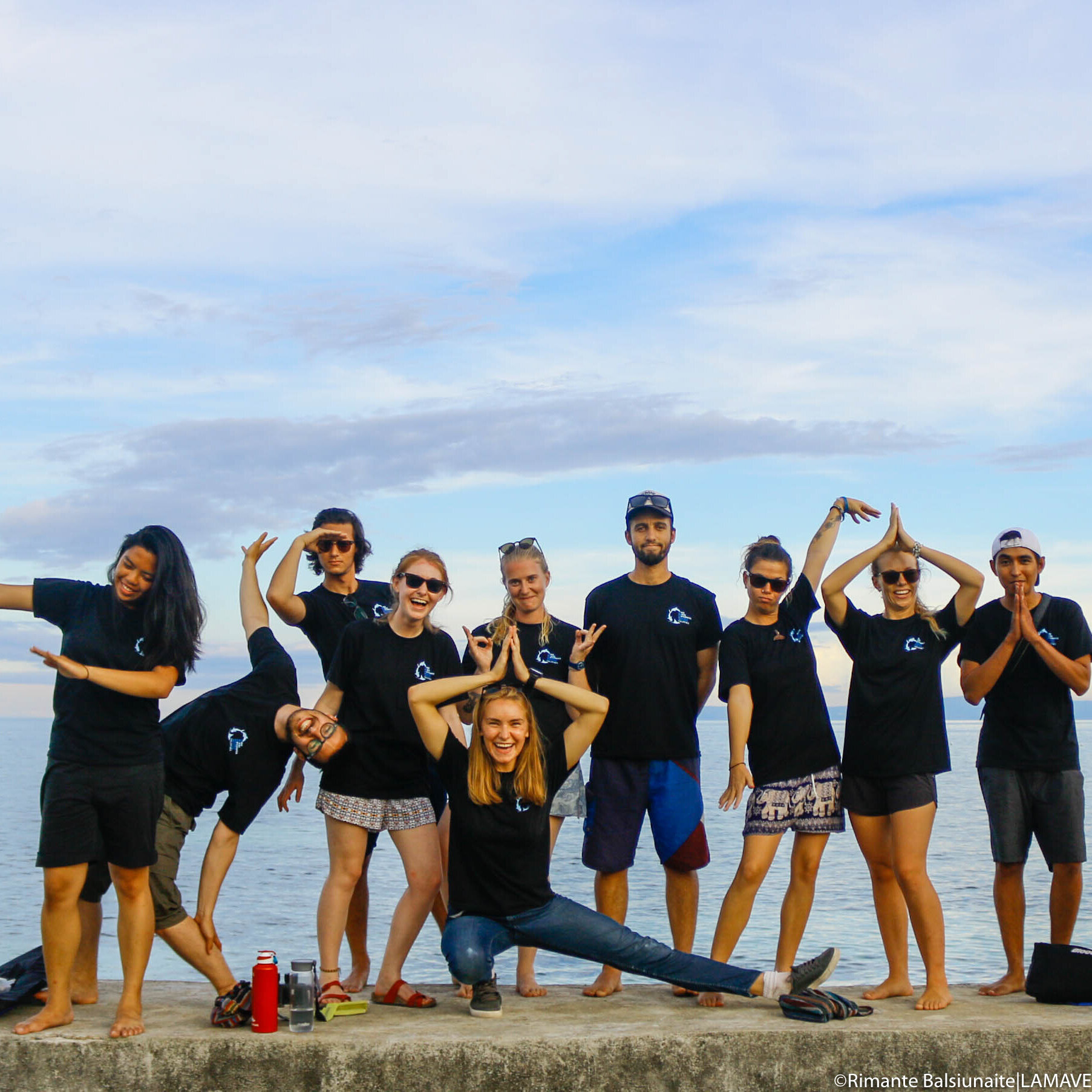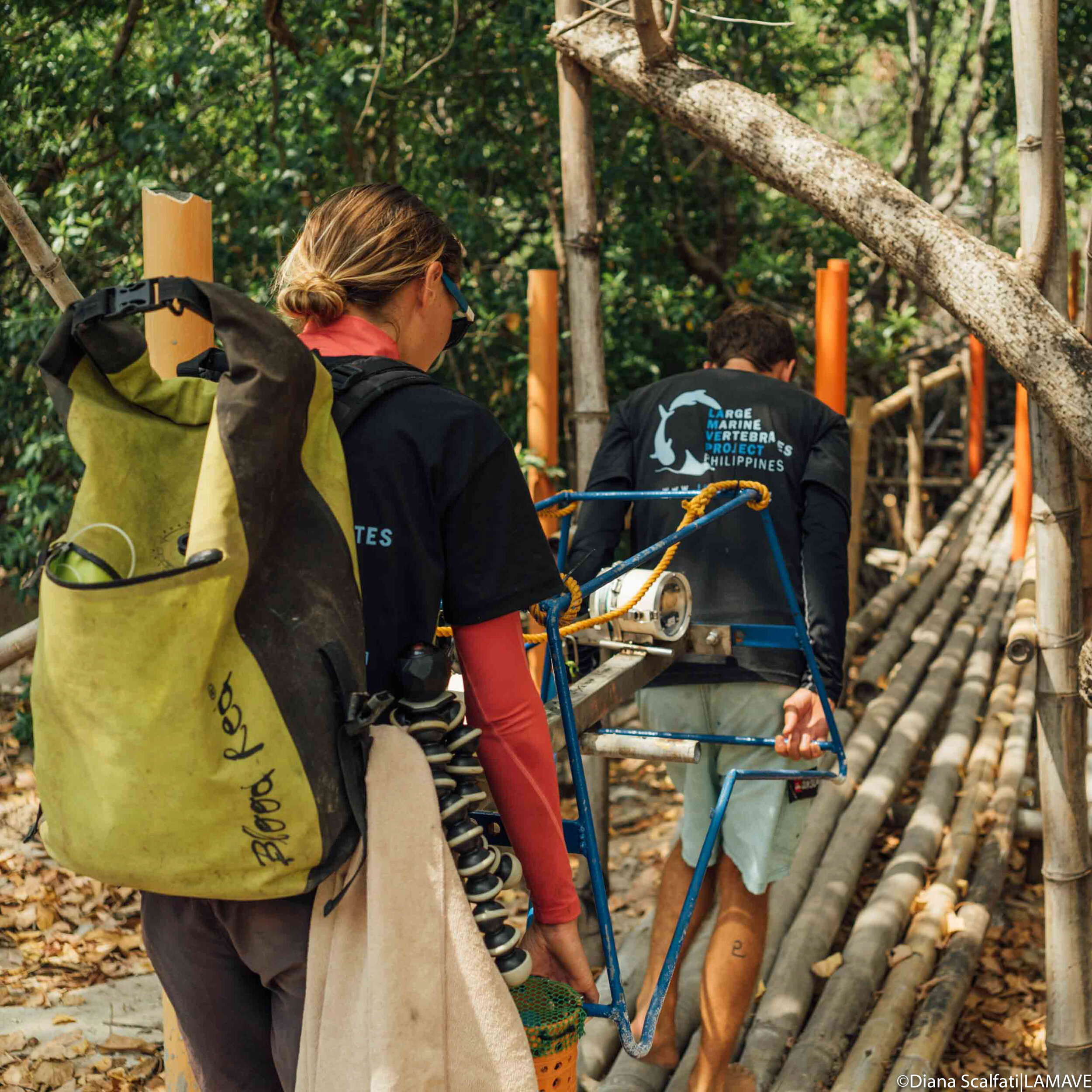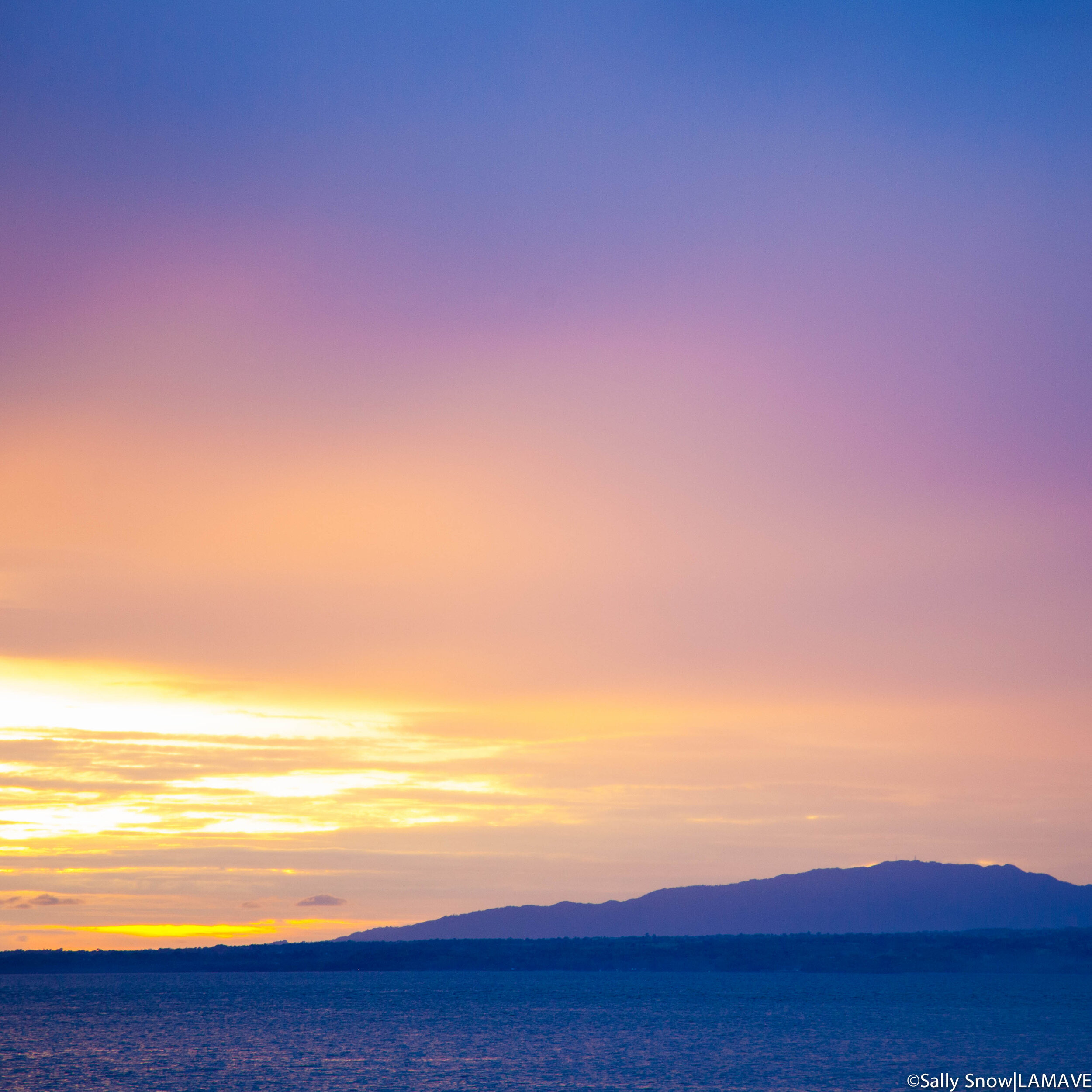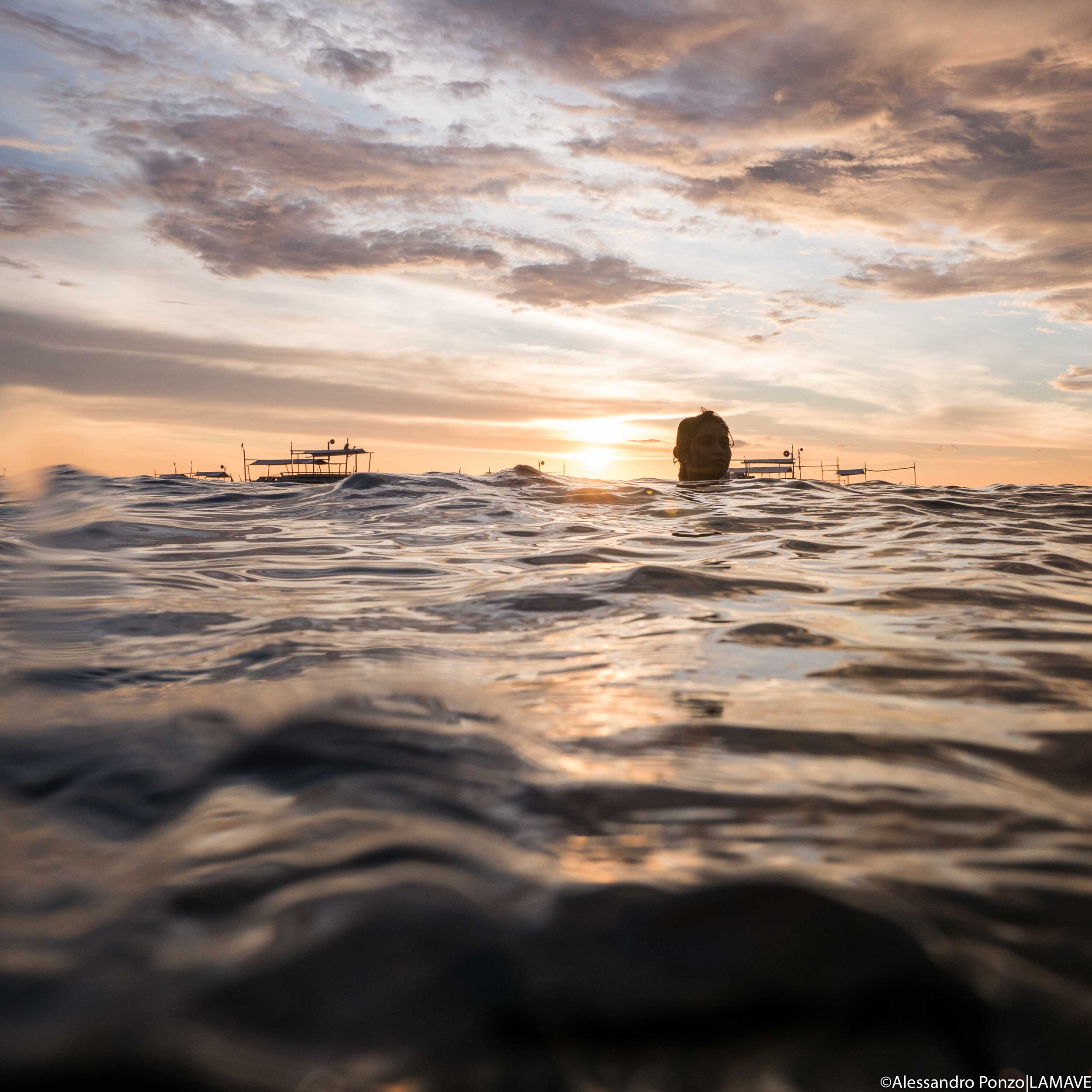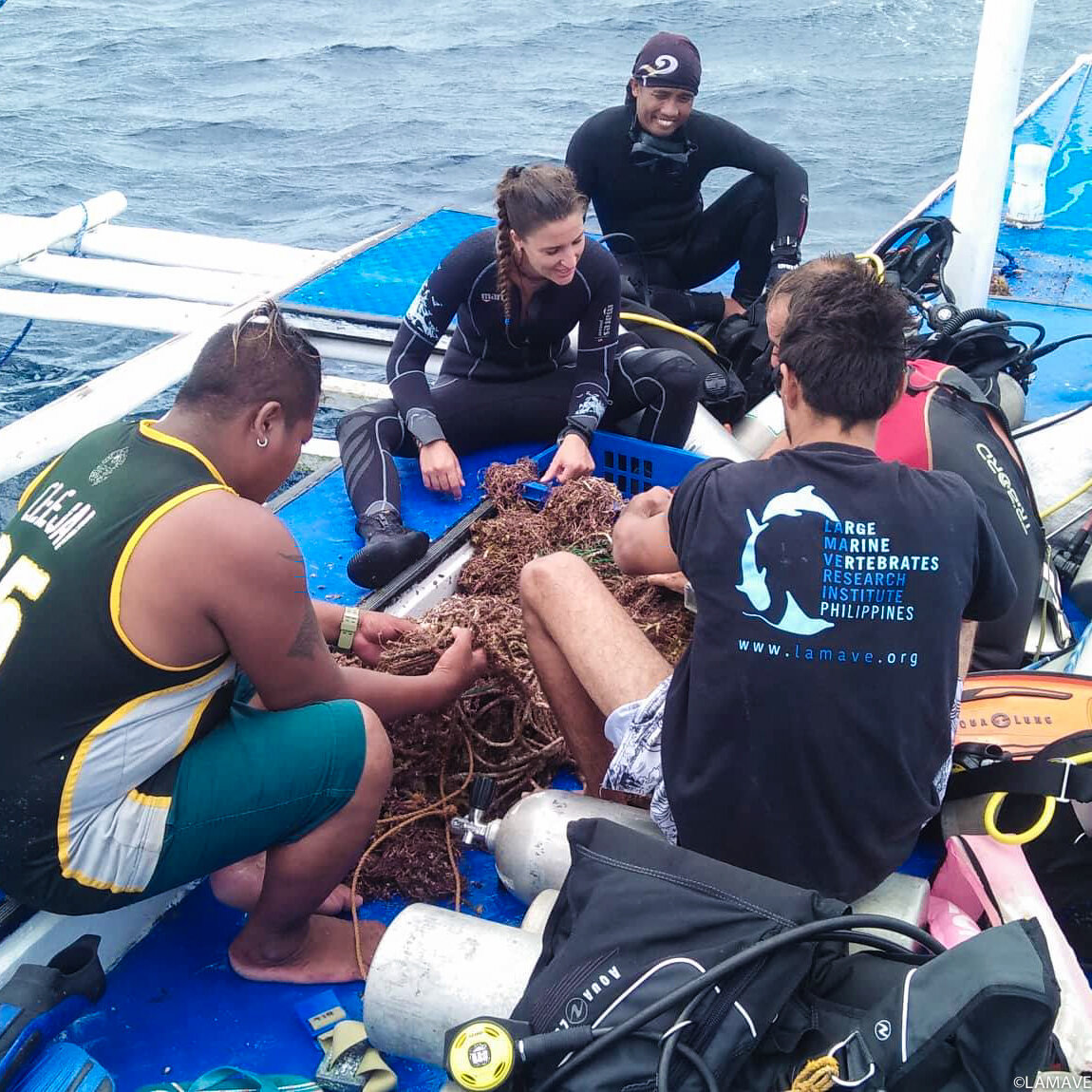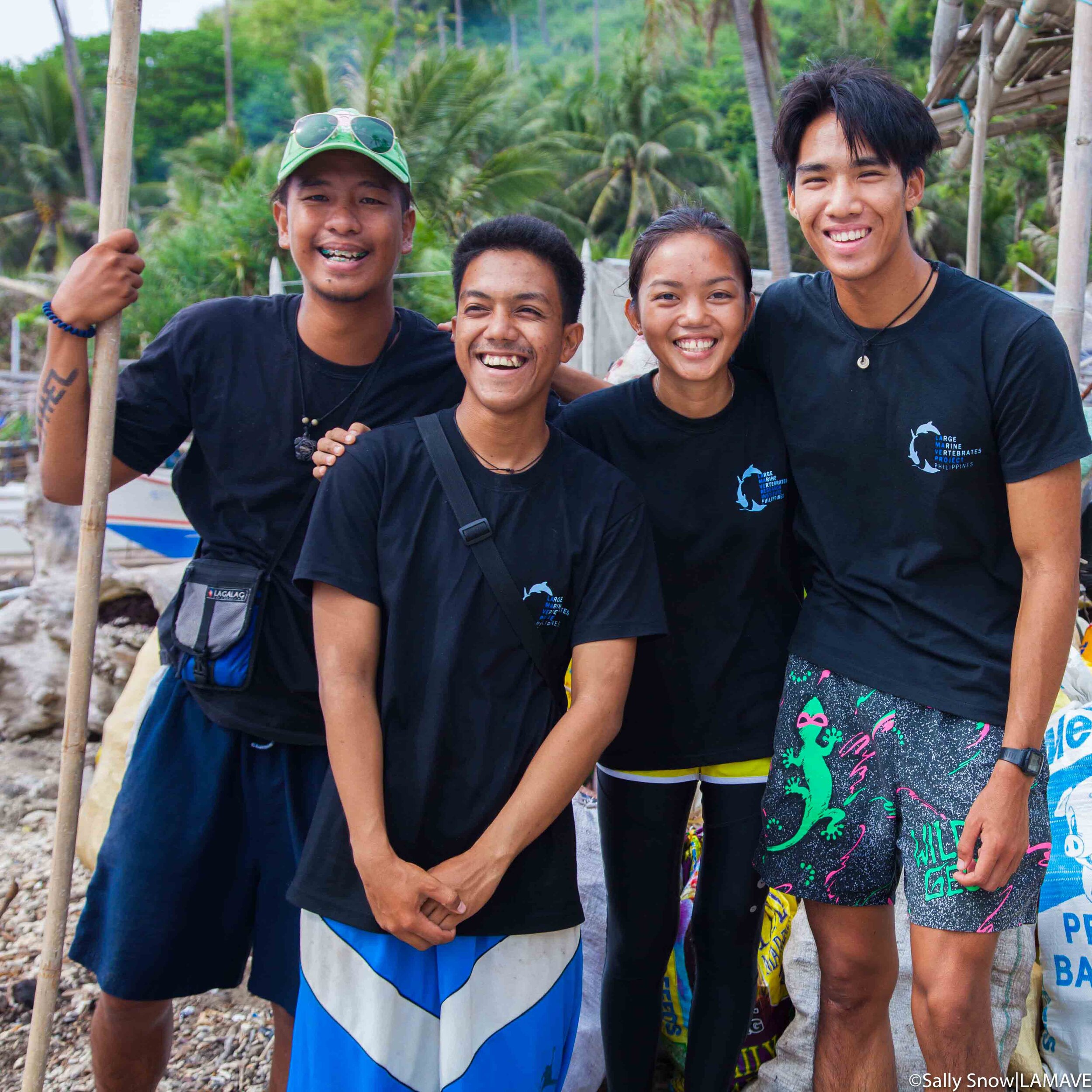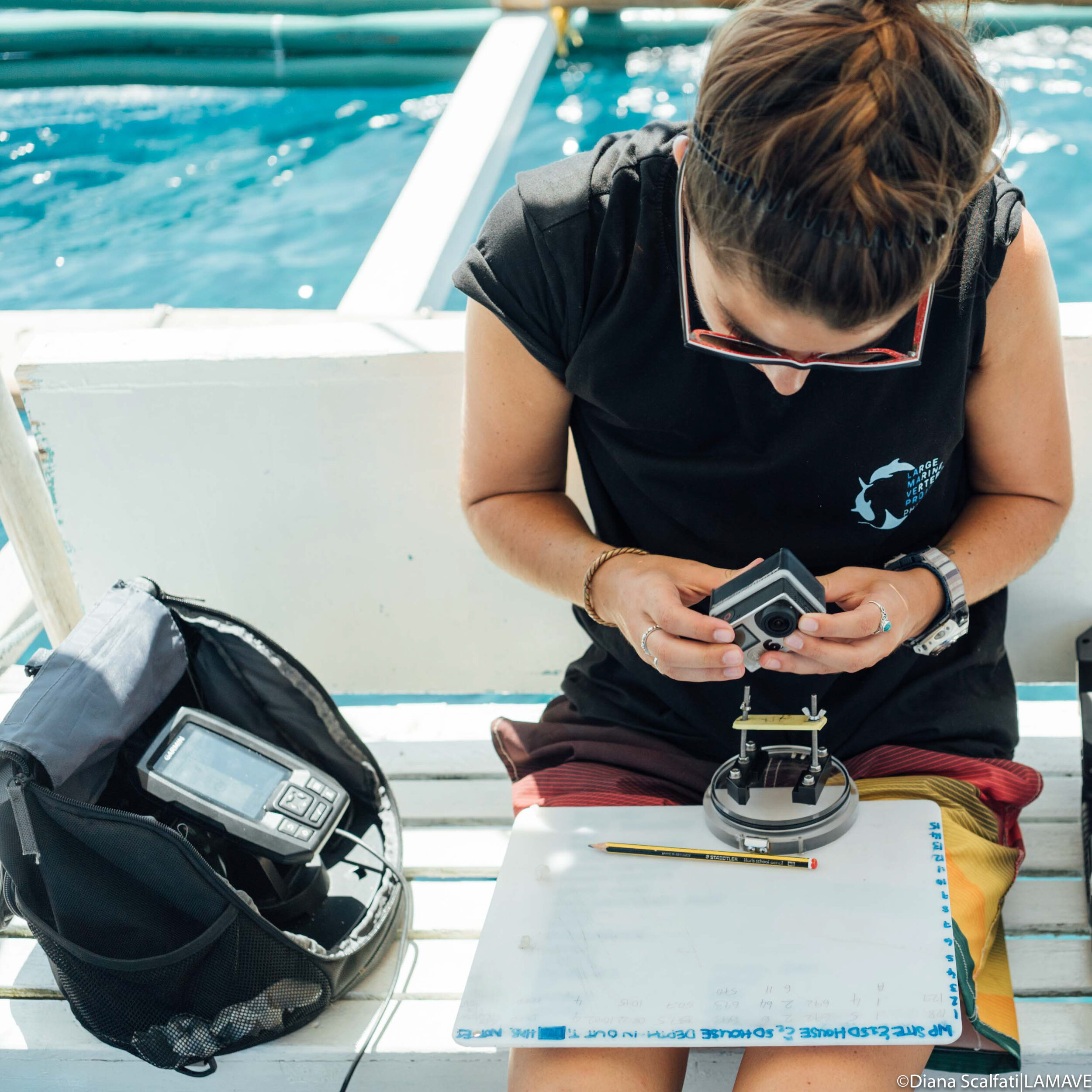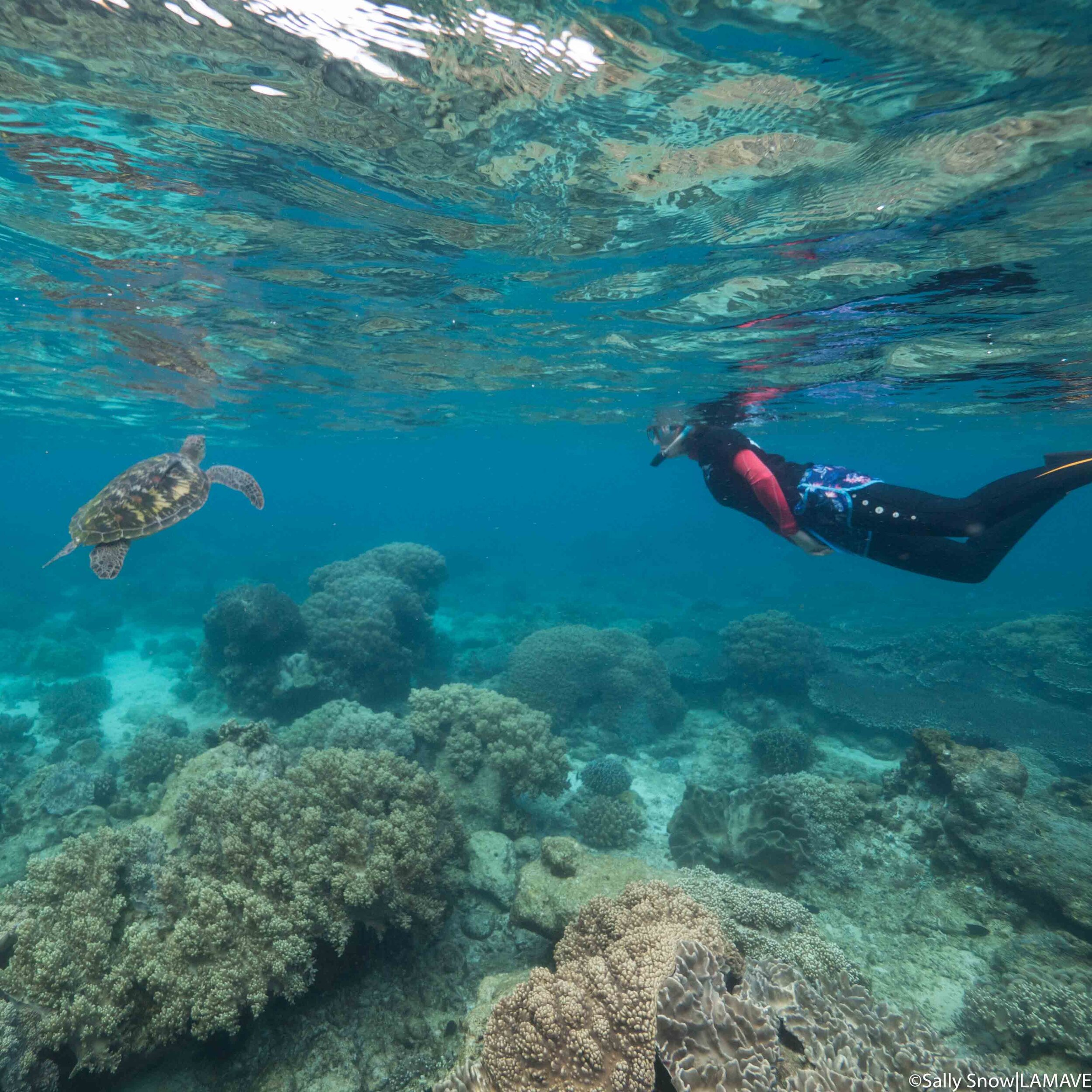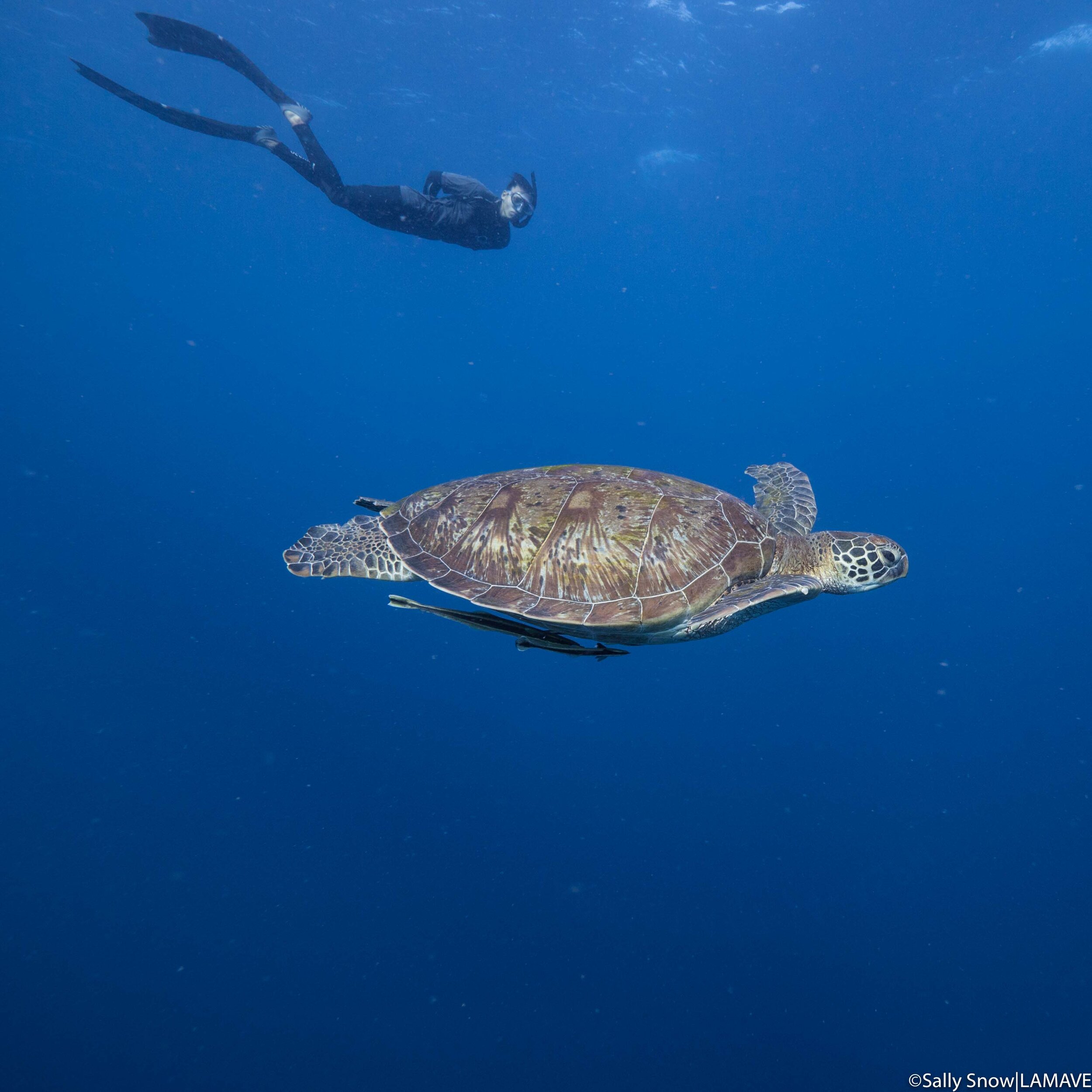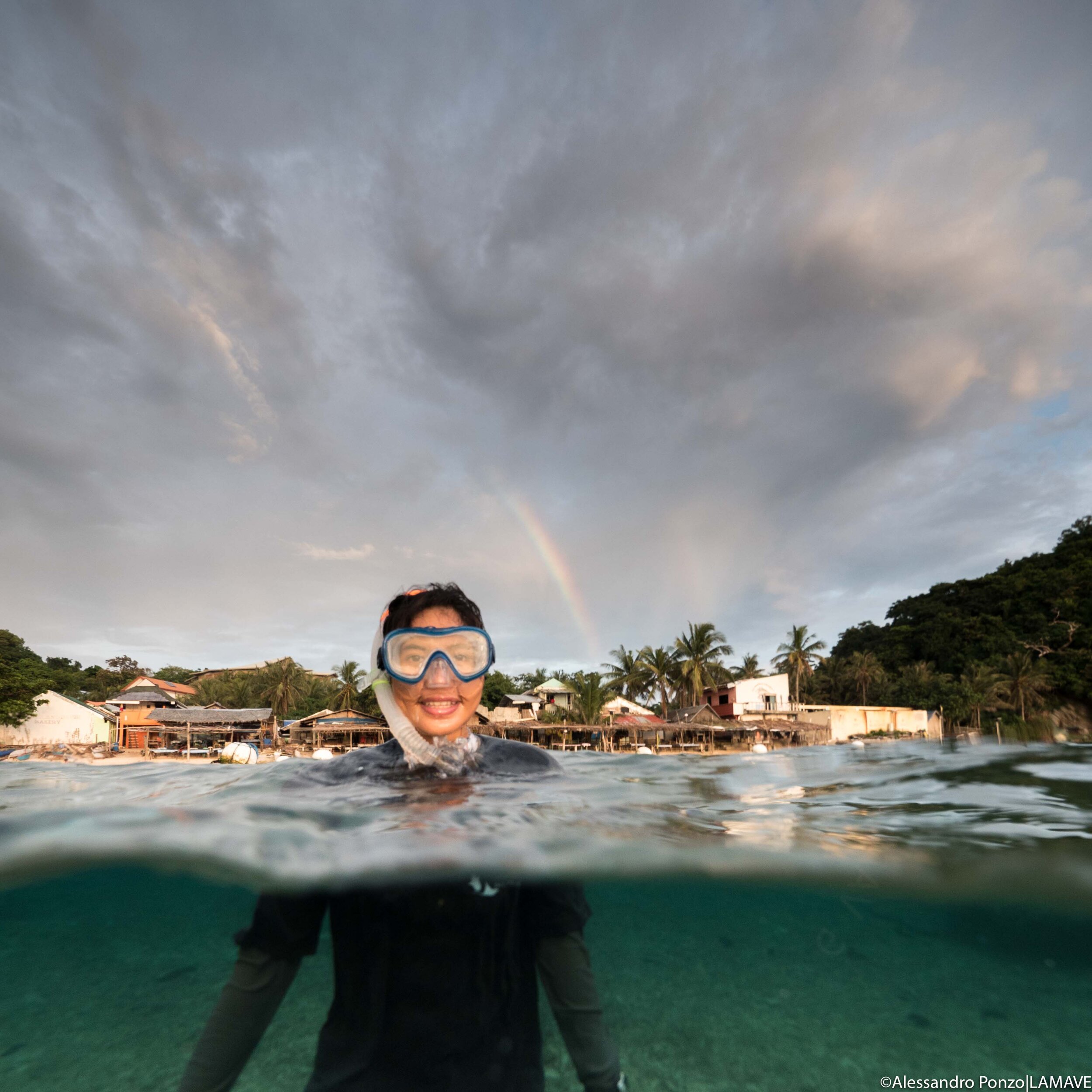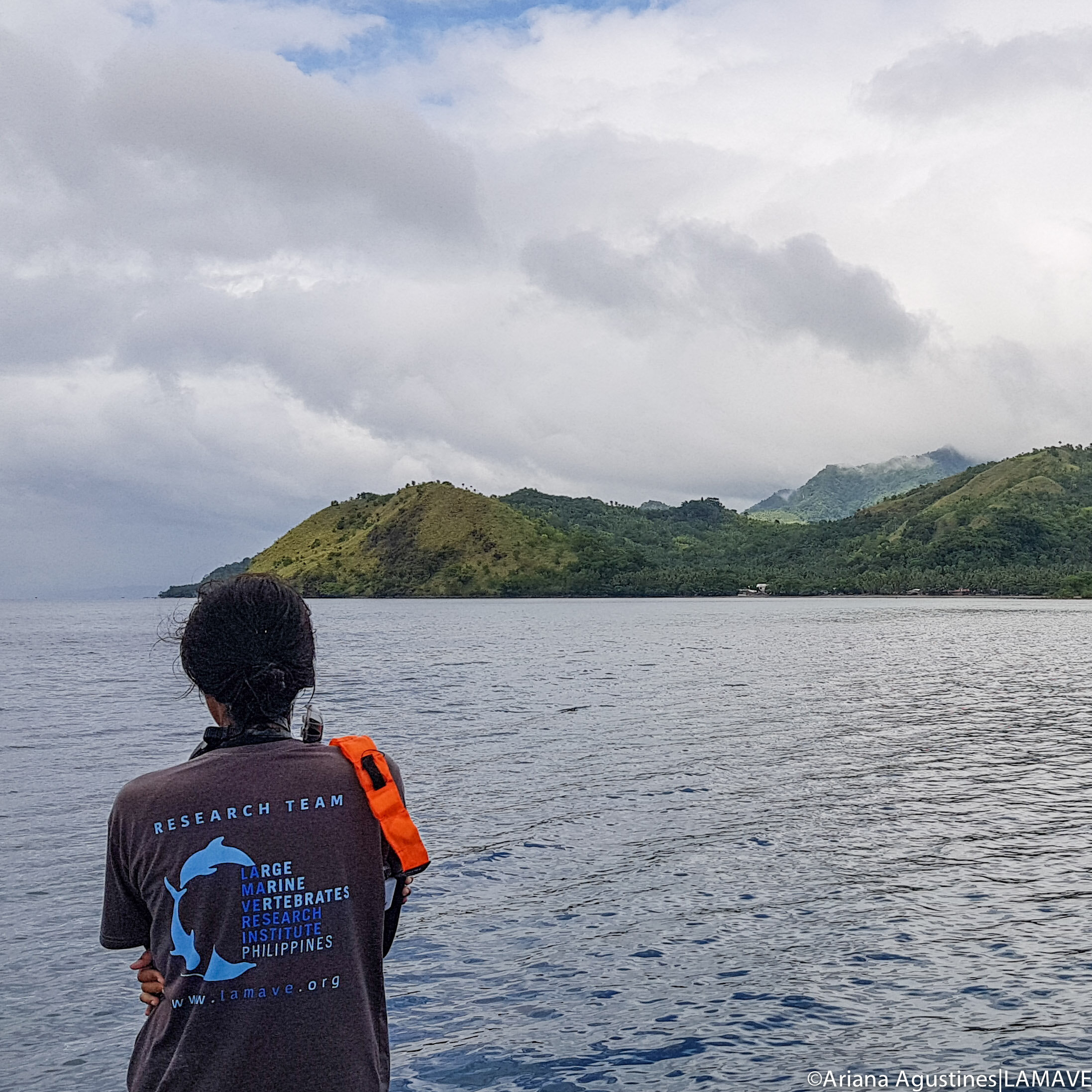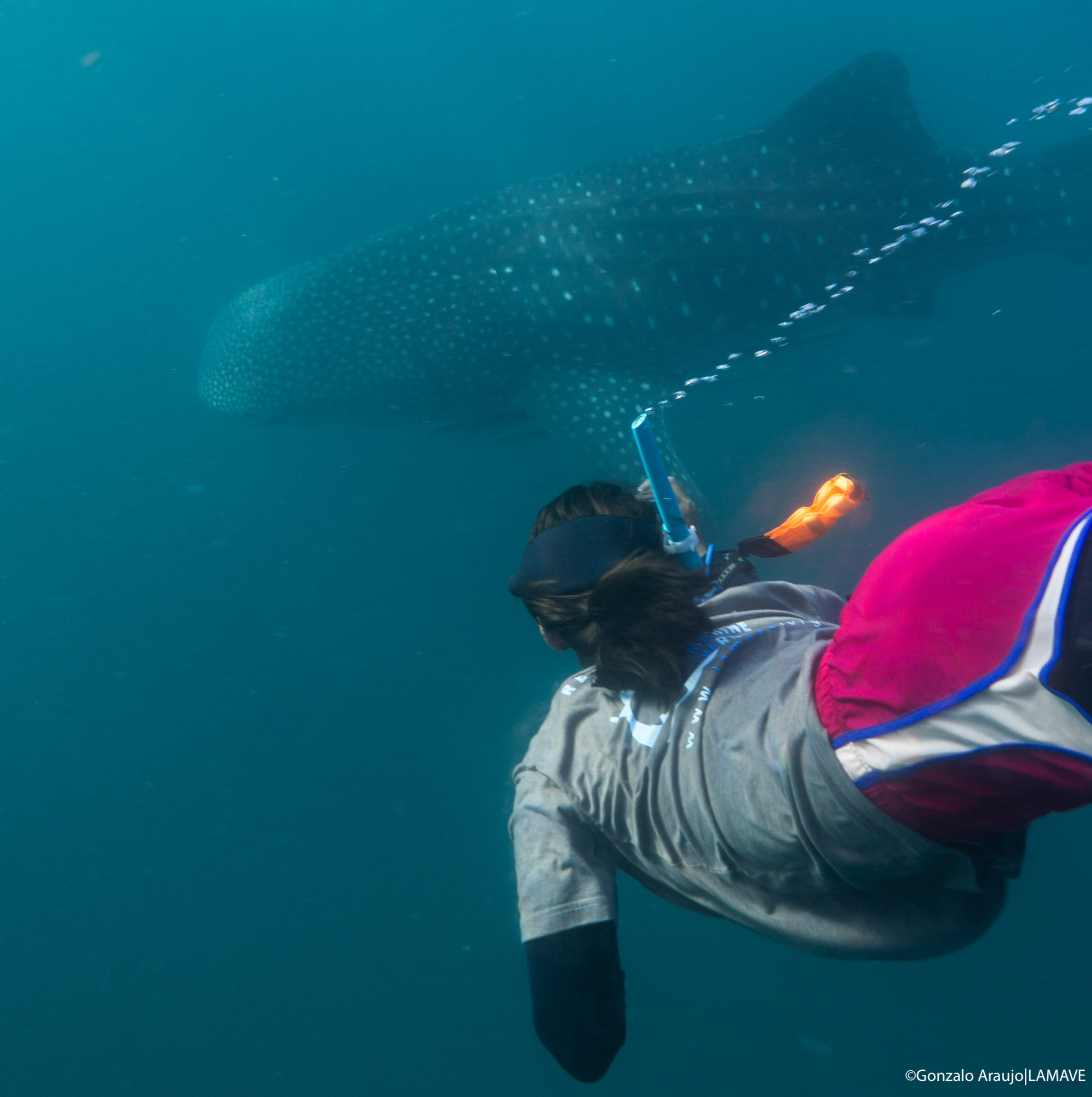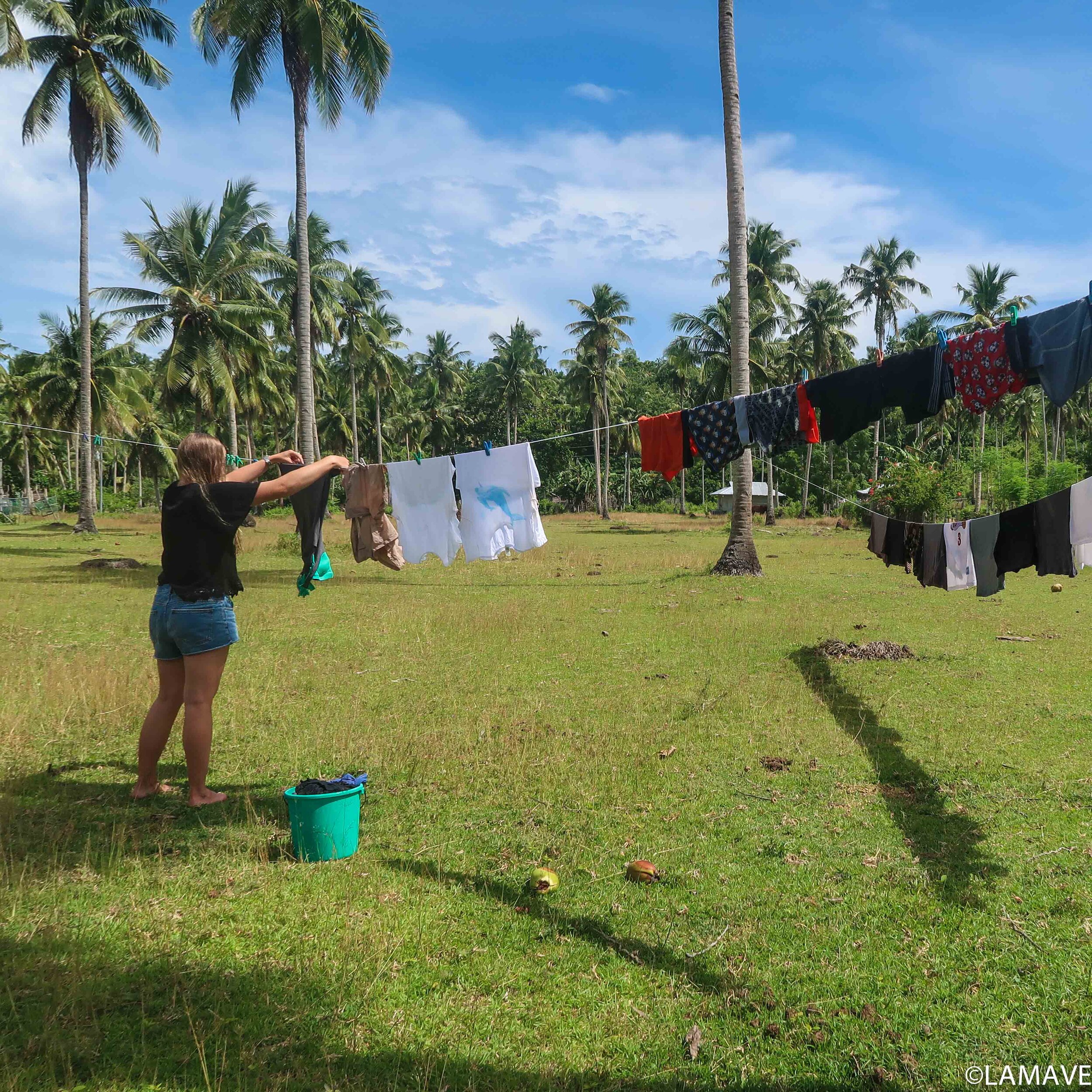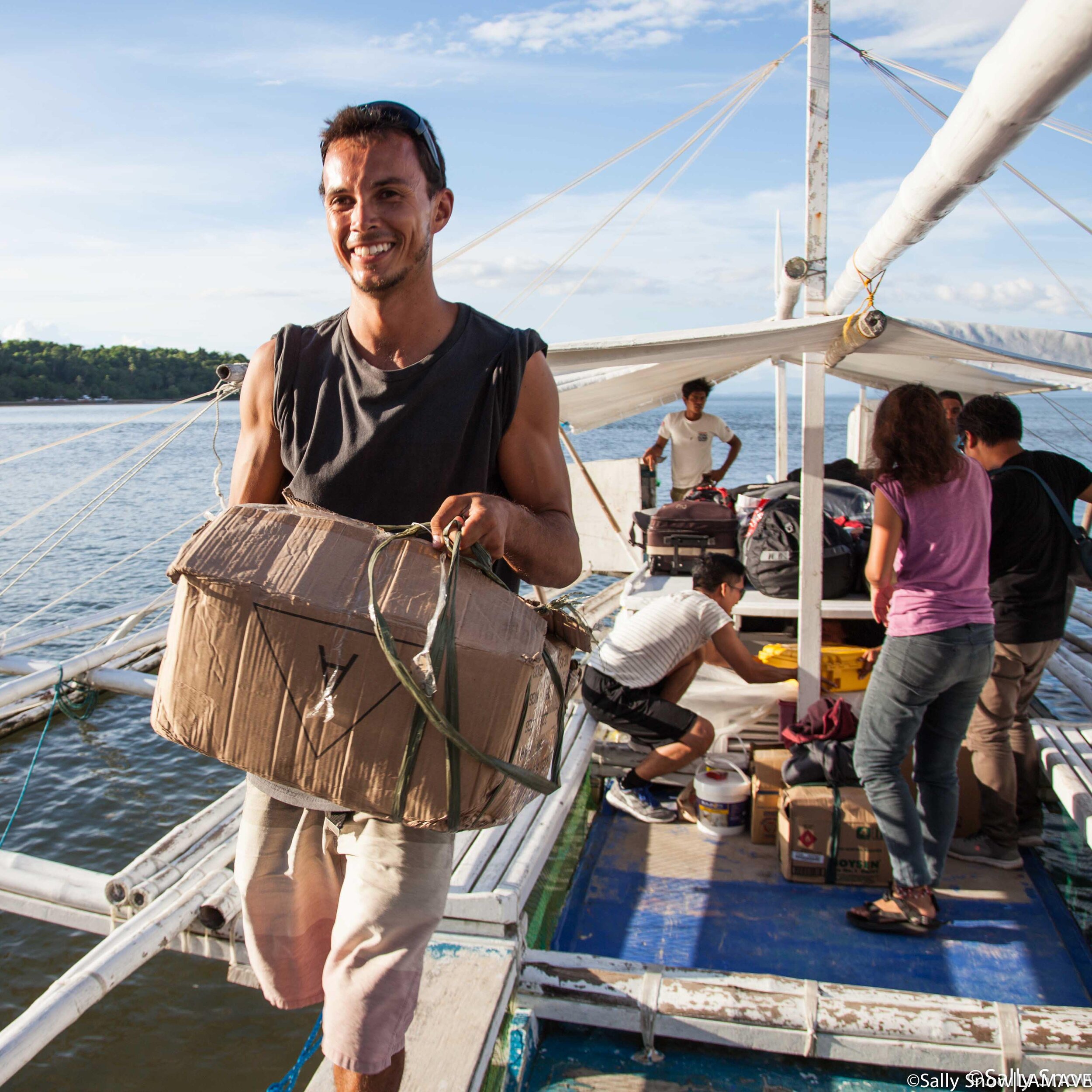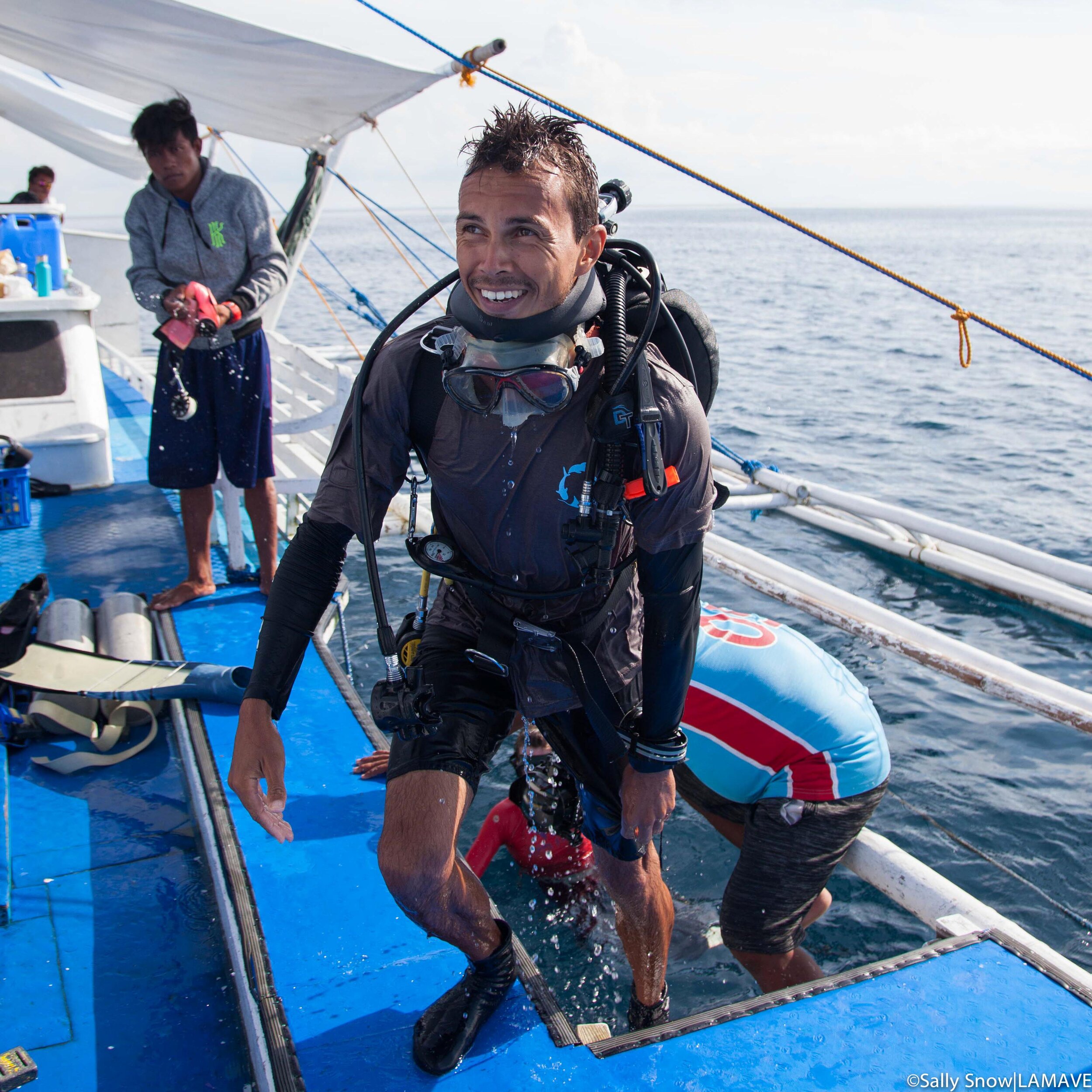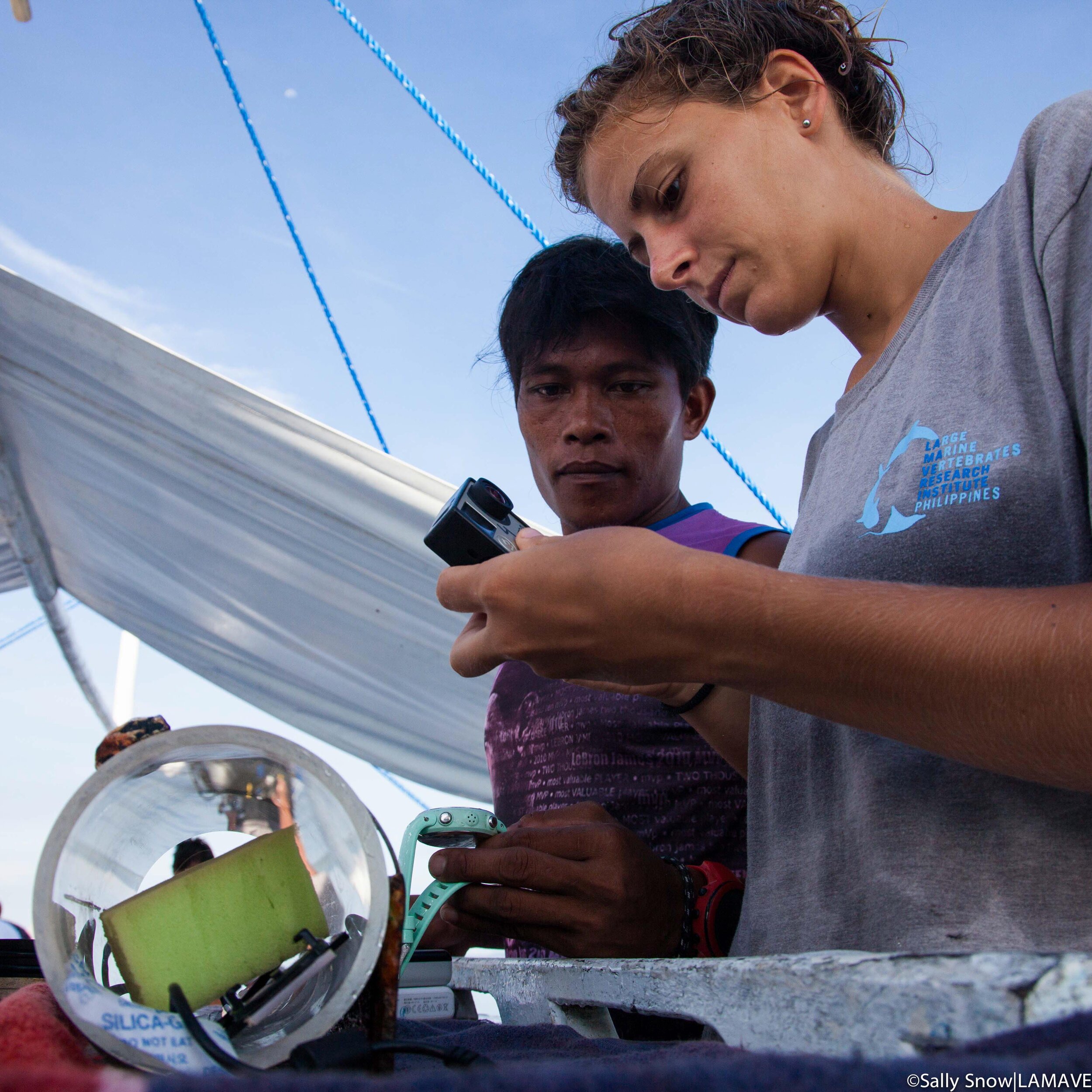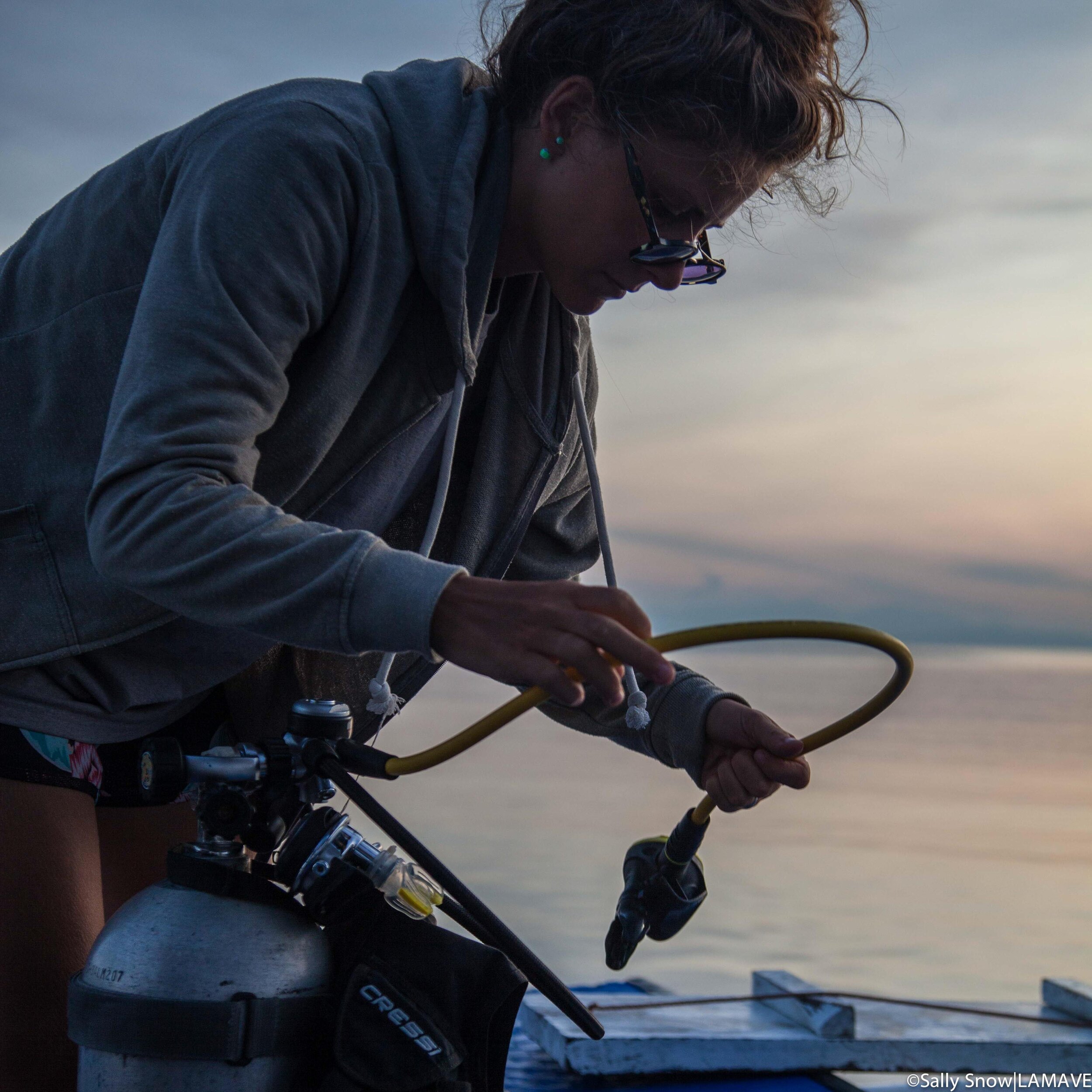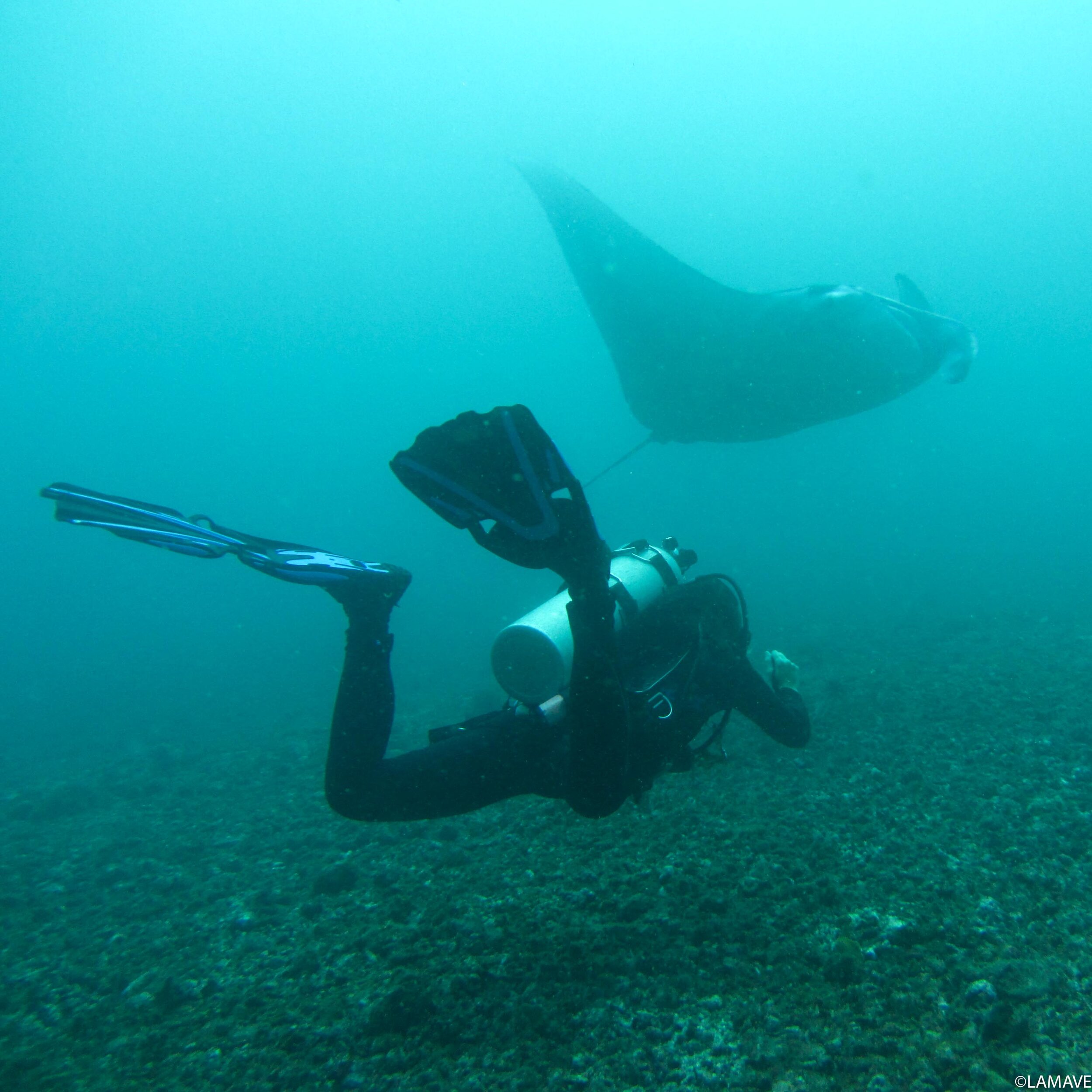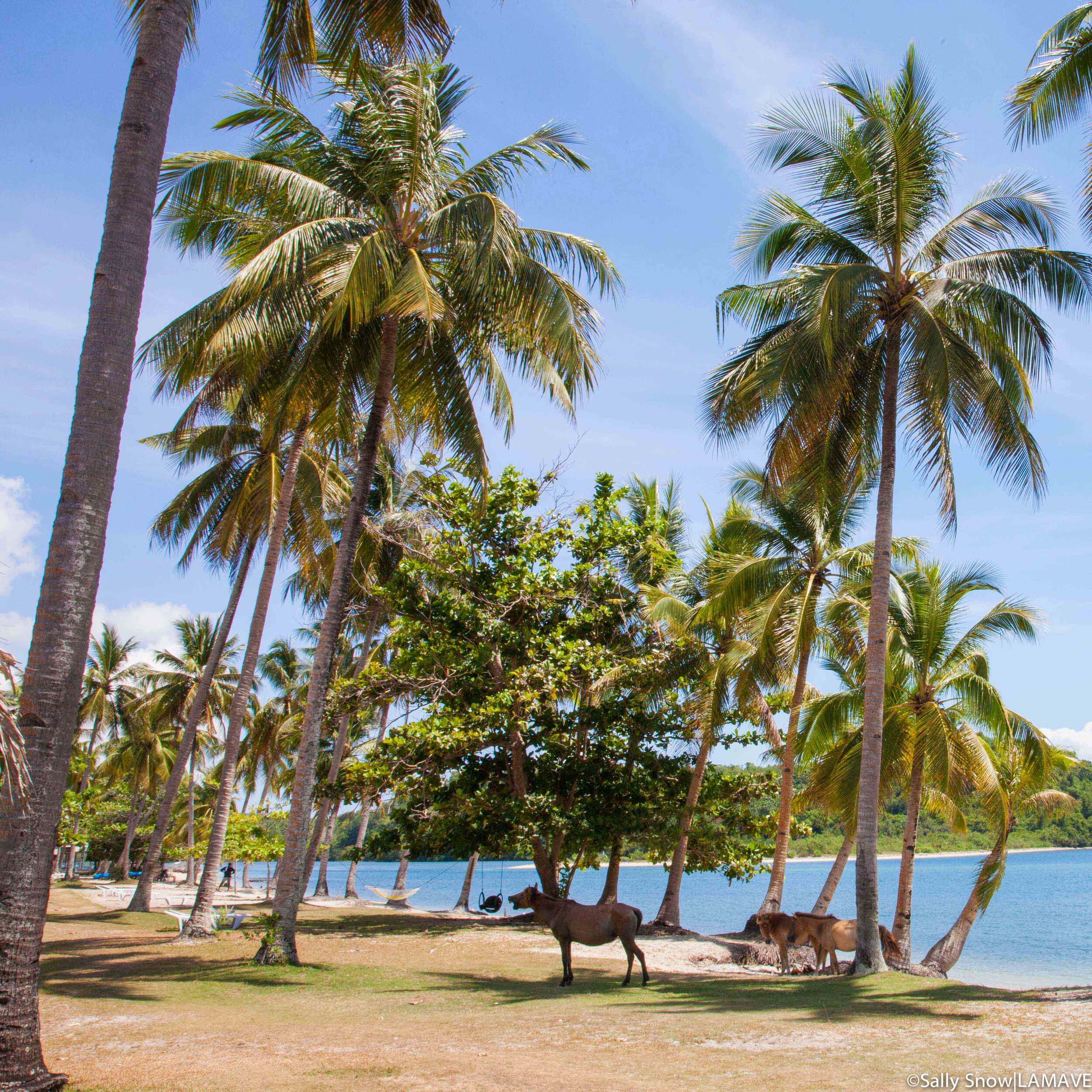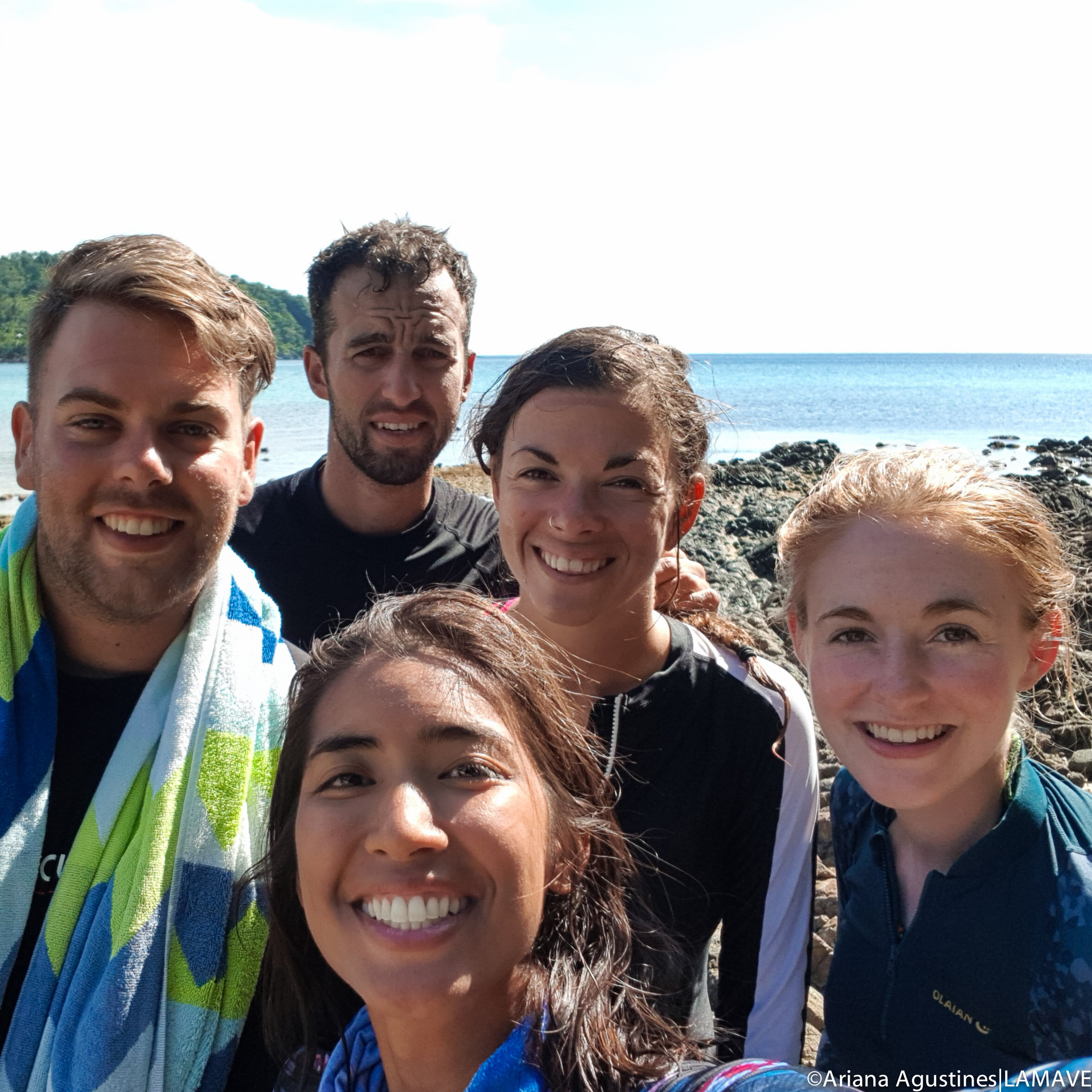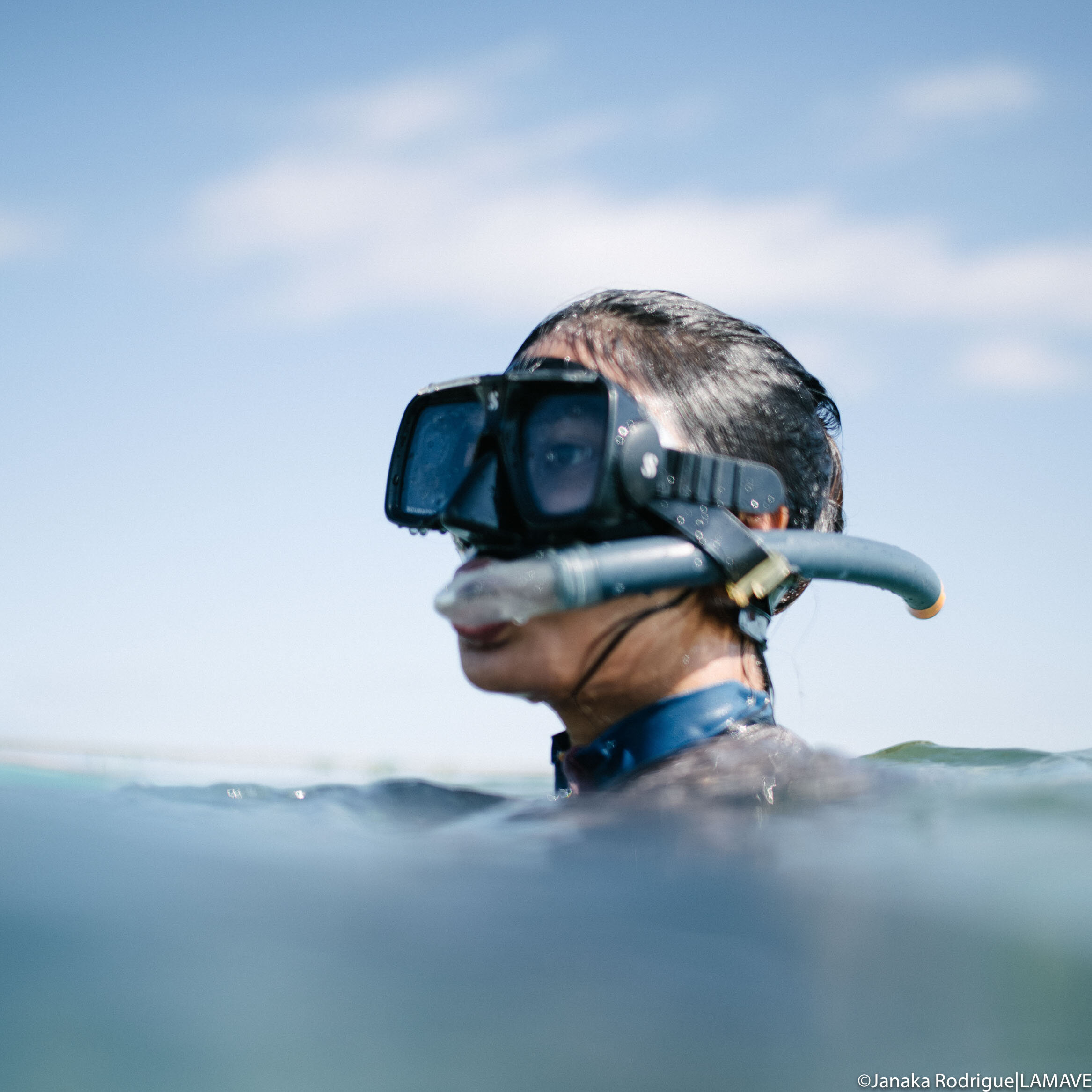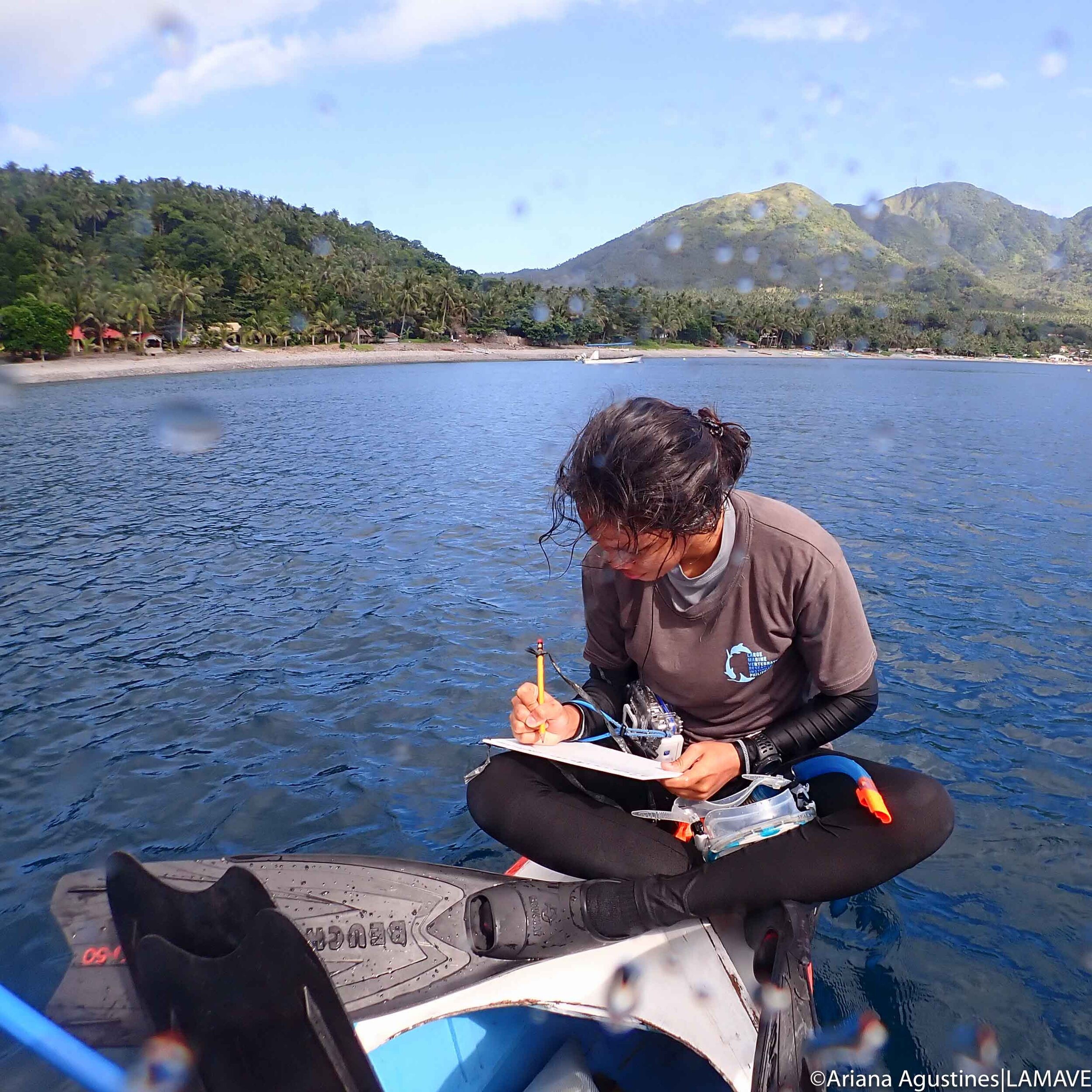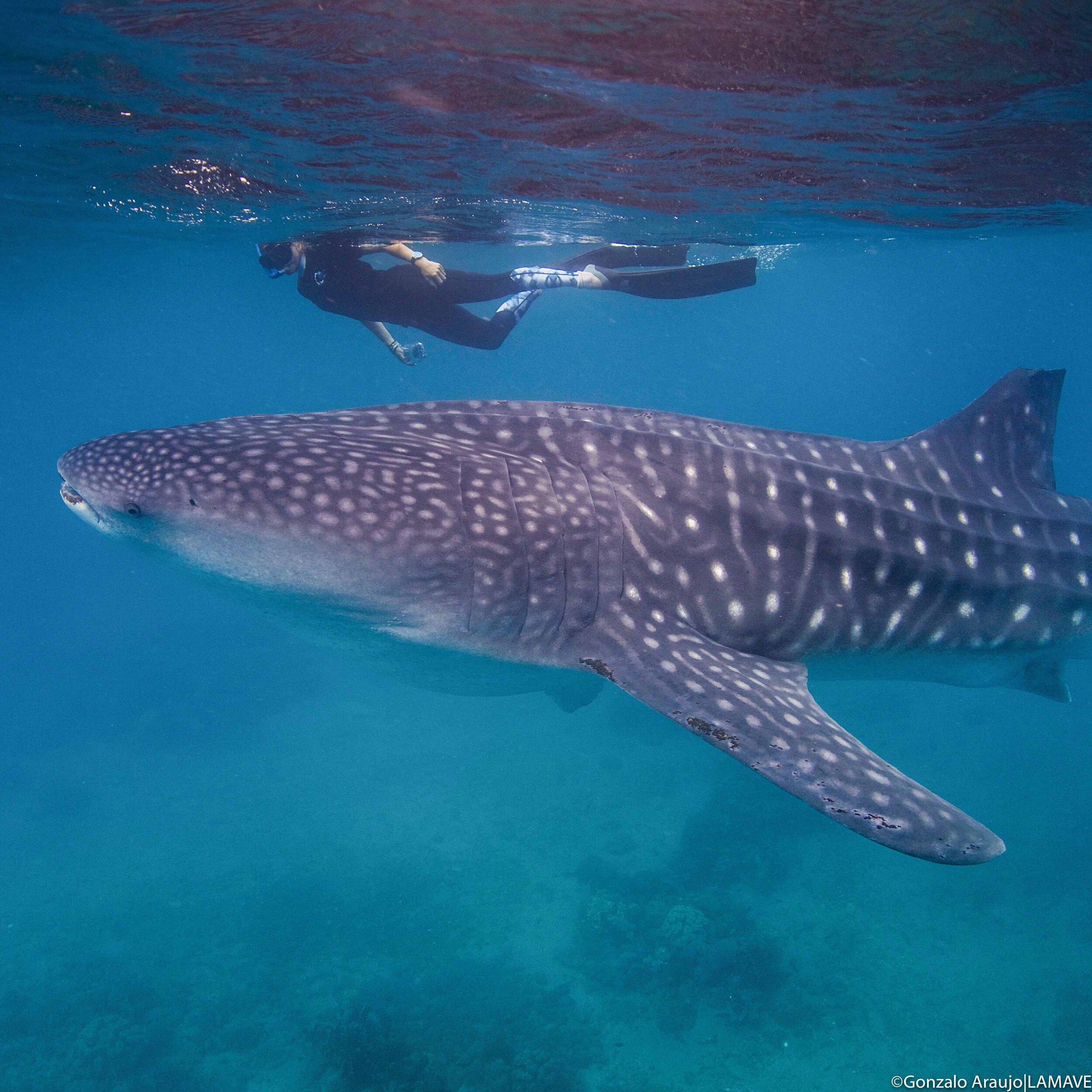Volunteering with #LAMAVE
Volunteers play a crucial role in LAMAVE’s research & conservation projects. We have trained >250 volunteers from over 30 countries.
“I can truly recommend volunteering with LAMAVE to everyone, who loves the ocean and wants to contribute to its protection. I have learned so much as a person, but I have also learned so much as a diver – and I enjoyed every minute of it.”
Why Volunteer?
Why Volunteer?
Contribute to Conservation
Volunteers are our manpower in the field. For example, since 2012, our volunteers have identified >1400 individual whale sharks - helping lead to the finding that the Philippines is the second largest known population of whale sharks in the world.
Gain On-The-Ground Field Experience and Research Skills
You’ll learn and apply research methods such as photo-identification and citizen science. But you’ll also experience the conservation challenges of finding the balance between humans and wildlife in a developing world.
Improve Your Free Diving
or Scuba Diving Skills
Our teams conduct surveys through free diving or scuba diving, depending on the project site. You’ll arrive a good swimmer, but leave a skilled in-water researcher.
Experience Incredible Wildlife Encounters
We study some of the most charismatic marine animals in the world. You’ll be joining teams studying whale sharks, turtles and/or manta rays.
Be Part of an International Team
Our teams are led by local experts and are composed of international and local volunteers. All our research projects work alongside local communities. You’ll meet new people, share life experiences, and be immersed in the rich culture of the Philippines.
Align your University Placement with LAMAVE
If you’re looking to complete a university placement, internship or gather data for your thesis then consider applying to one of our listed opportunities. More info HERE
Project Sites
What can I expect?
Dates and Commitment
Volunteers join LAMAVE for a minimum of 3 months on freediving research sites and a minimum of 1 month on scuba diving projects. This time period allows our team enough time to help you master the skills needed to collect high-quality data that contributes to conservation actions. It also provides stability for the research team and ensures we always have a fully trained team on the ground.
Research Sites
Our projects focus on threatened marine megafauna, including turtles, whale sharks and manta rays. All projects have a donation requirement that directly supports LAMAVE’s long-term conservation efforts in the Philippines. These donations play an incredibly important role in supporting LAMAVEs conservation outputs. They complement grants and independent funding, contribute to core funding and help support the long-term activity of research and conservation project sites and conservation outputs and impact.
See below for some examples of projects that were accepting volunteers before the pandemic. Note that when we do reopen project sites to volunteers, some of these projects may have changed, and/or new projects may have developed.
Panglao Turtle Research and Conservation Project
Skill needed: Freediving
Project Goal: To identify and describe the population of turtles utilising the waters of Balicasag island.
Fun fact: Balicasag hosts one of the largest foraging grounds for green turtles in the Philippines.
Season: Year-round
Minimum volunteer commitment: 3 months
Minimum requirement: 21 years old, can free dive up to 7 meters
Southern Leyte Whale Shark Research and Conservation Project
Skill needed: Freediving
Project goal: Monitoring the presence of whale sharks, as well as conducting in-water behavioural surveys and tourist compliance surveys in the area. We work closely with the local community to encourage sustainable practices.
Fun fact: In 2013, our team encountered an individual whale shark in Southern Leyte that was last seen by scientists in Taiwan, making it the first international photo-ID match in Asia!
Season: November - March
Minimum volunteer commitment: 3 months
Minimum requirement: 21 years old, can free dive up to 7 meters
Palawan Whale Shark Research and Conservation Project
Skill needed: Freediving
Project Goal: Assessing the seasonal distribution of whale sharks in the area to assist in their conservation by working with local government units and the local community.
Fun fact: Puerto Princesa whale sharks have reported movement and connectivity between Philippine, Malaysian and Indonesian waters, and represented the first international return in Asia!
Season: April - October
Minimum volunteer commitment: 3 months
Minimum requirement: 21 years old, can free dive up to 7 meters
Donsol Whale Shark Research and Conservation Project
Skill needed: Freediving
Project goal: Assessing the population of whale sharks visiting Donsol Bay. Understanding and mitigating the effects of tourism.
Fun fact: Founded in 1998, Donsol is the first whale shark tourism site in Asia and is the oldest whale shark database in the country.
Season: February - June
Minimum volunteer commitment: 3 months
Minimum requirement: 21 years old, can free dive up to 7 meters
North Palawan Manta Ray Research and Conservation Project
Skill needed: Scuba diving
Project goal: To identify and describe remaining populations of manta and devil rays in the country, identify conservation priority areas and migratory corridors and set the basis for the creation of a dedicated network of protected areas to allow the species to recover.
Fun fact: North Palawan is not only known for manta ray cleaning stations, it is also home to other species such as turtles, reef sharks and dugongs!
Season: Year-round
Minimum volunteer commitment: 1 month
Minimum requirement: 21 years old, Advanced Open Water Scuba Diver or BSAC
Ticao Manta Bowl Manta Ray Research and Conservation
Skill needed: Scuba diving
Project Goal: To identify and describe remaining populations of manta and devil rays in the country, identify conservation priority areas and migratory corridors and set the basis for the creation of a dedicated network of protected area to allow the species to recover.
Fun fact: In 2018, with the local government and community, LAMAVE organised the first manta awareness day in the town of San Jacinto and celebrated these amazing animals with hundreds of local people.
Season: Year-round
Minimum volunteer commitment: 1 month
Minimum requirement: 21 years old, Advanced Open Water Scuba Diver or BSAC
You can learn more about how these research projects on whale sharks, turtles and manta rays fit into wider program goals and conservation outputs HERE.
Life on Site
Accommodation
Our project houses are communal, shared living space.
All team members are required to stay at the project house throughout their stay, this is for health and safety and for team work purposes.
All project houses have a kitchen, bathroom and a shared place where you can lounge and work. You’ll be provided with a bed in a shared room.
Due to the remoteness of some of our sites some project houses have limited signal (phone and internet data), electricity and water. For example some of our sites are based on islands where electricity is only available at certain periods of the day or where we collect shower water from a well and drinking water from another town.
Part of your role as a volunteer is helping keep the project house clean and contributing to daily chores such as cooking.
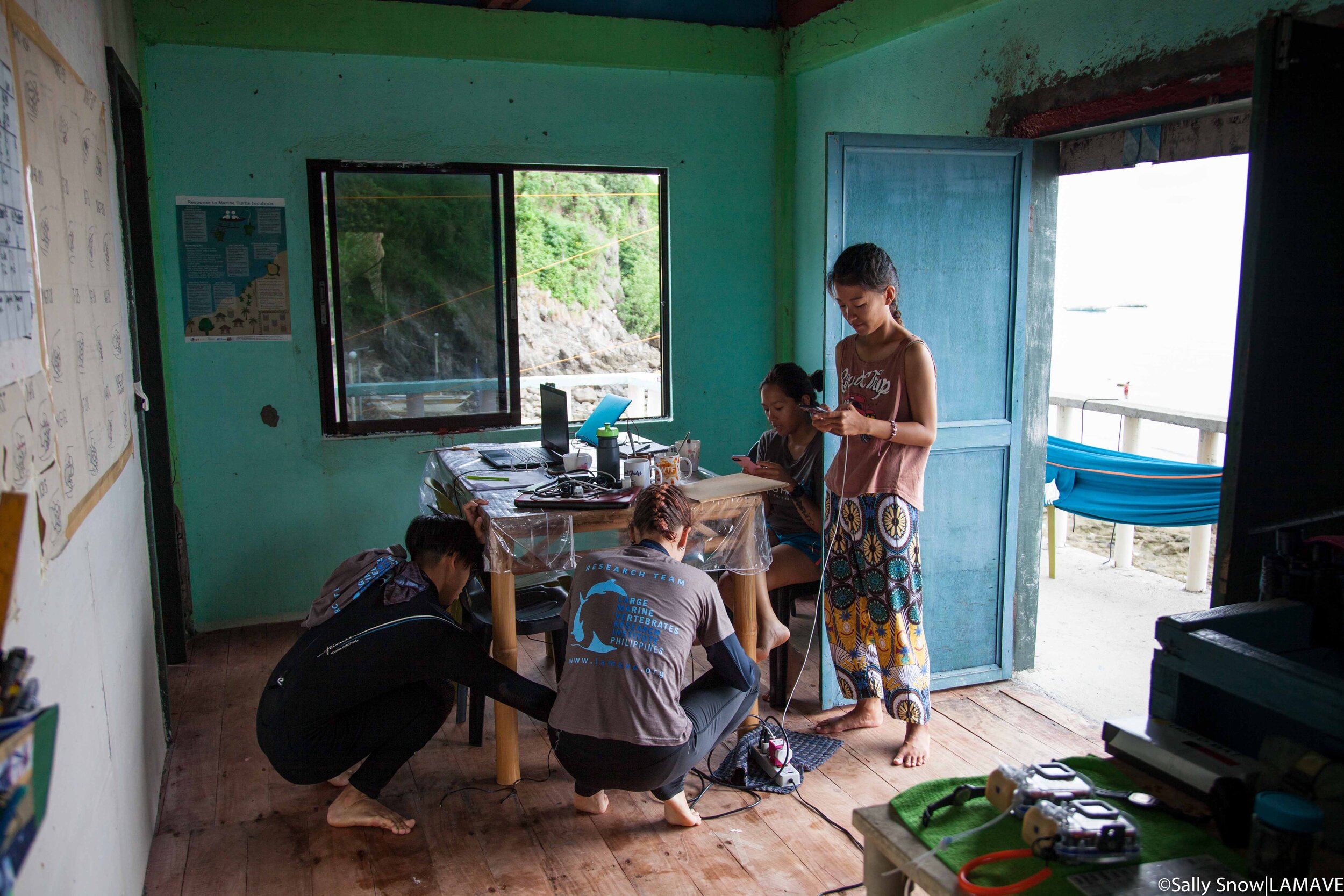
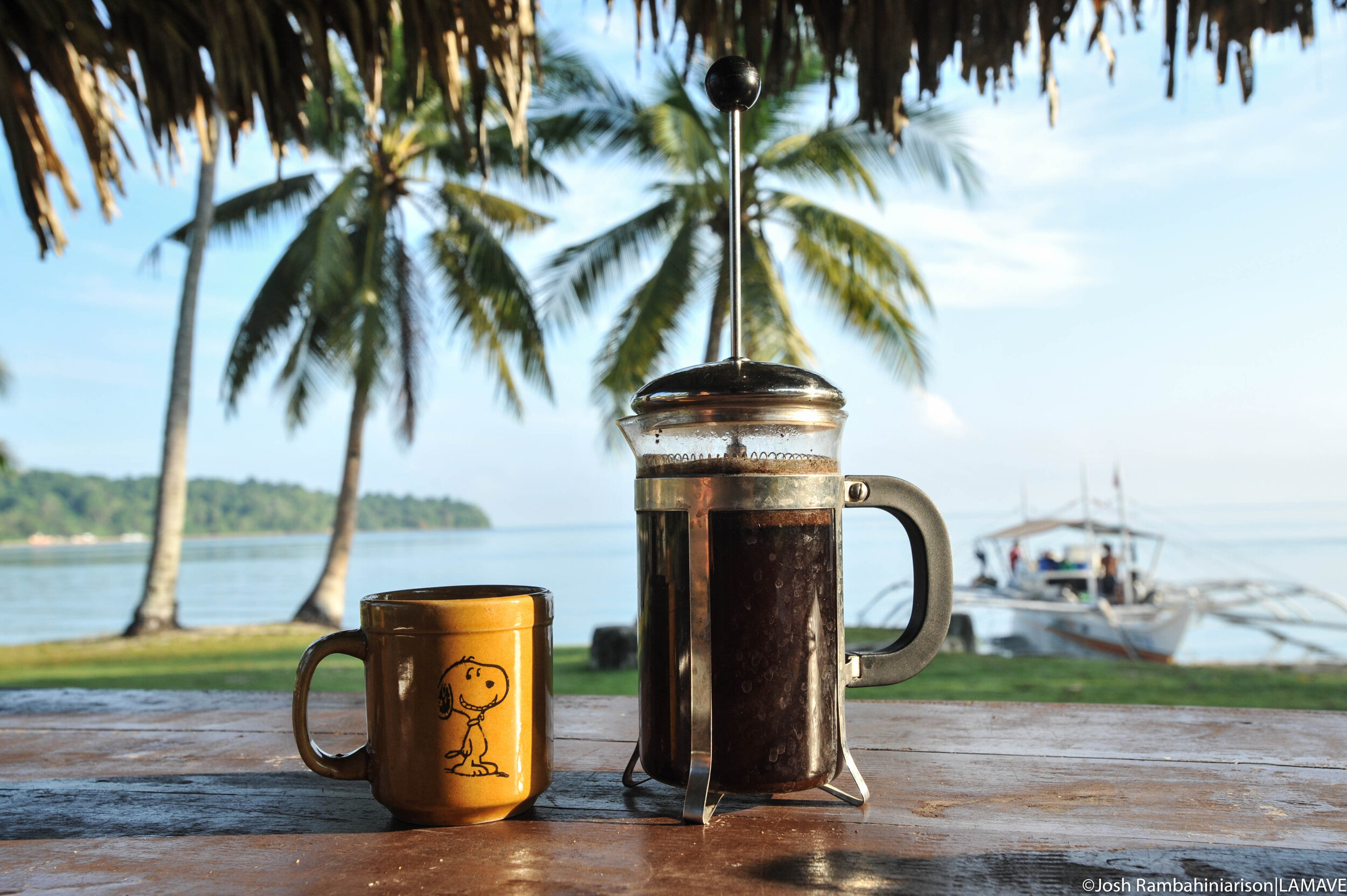
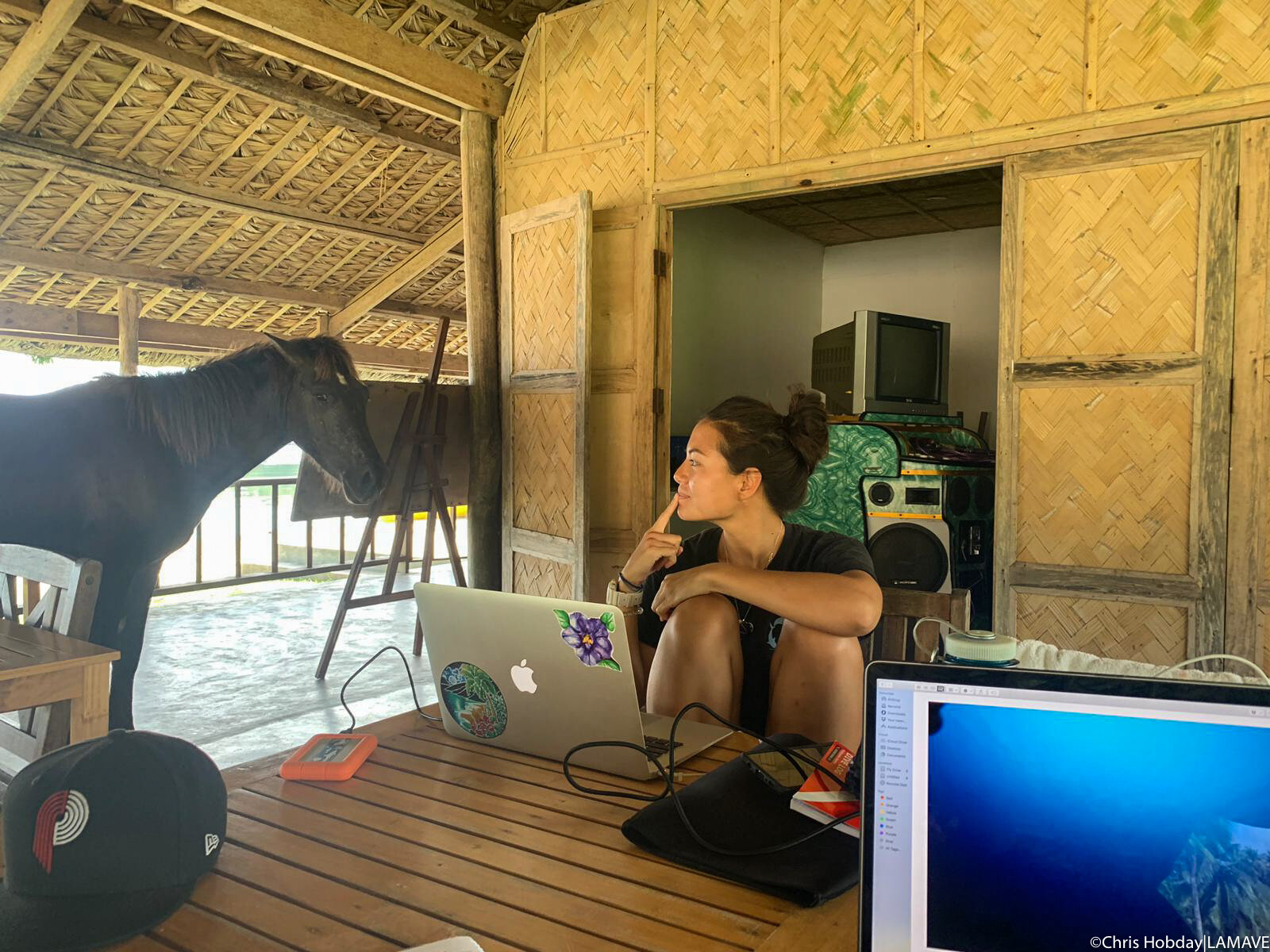
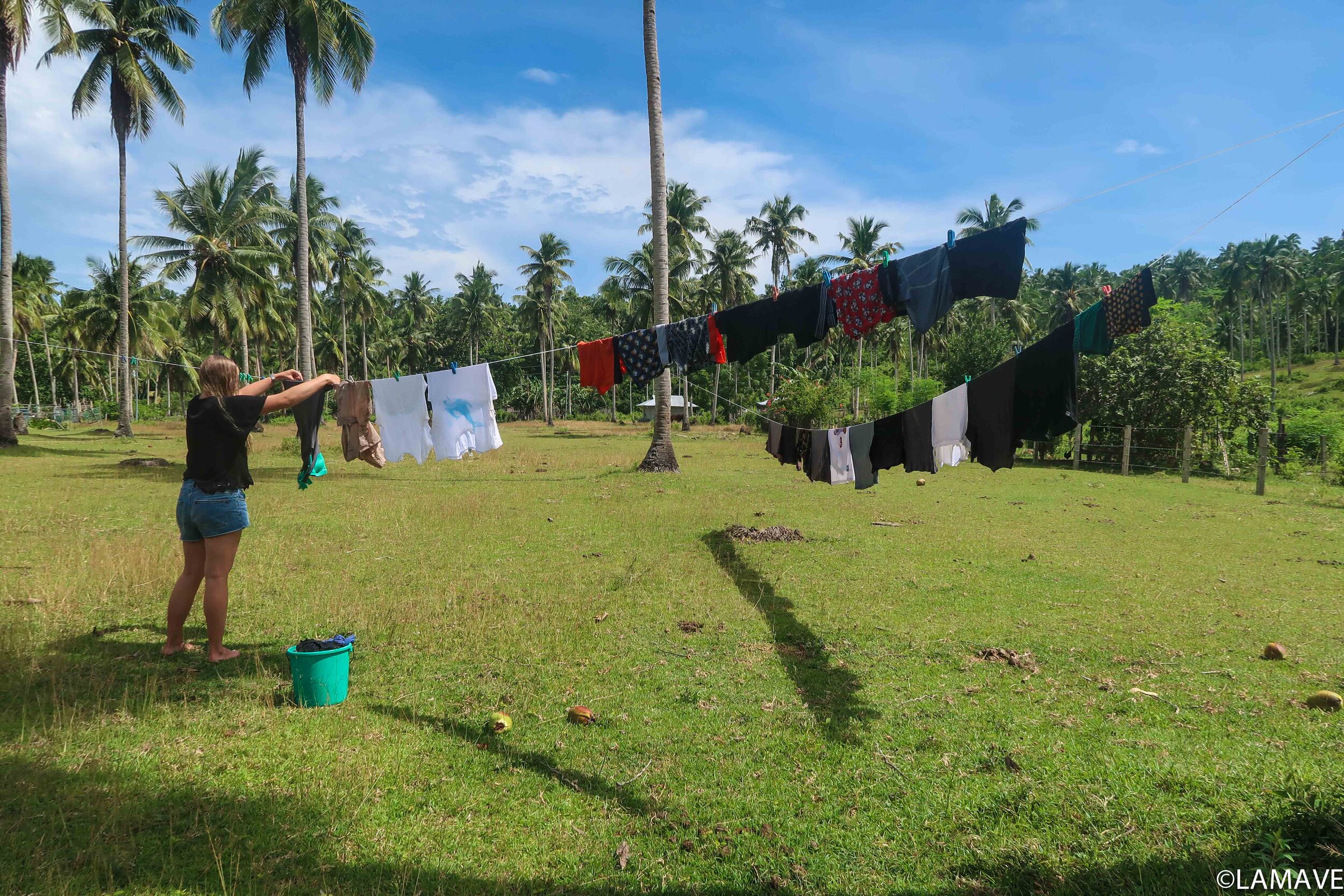
Food
Food and cooking is communal, so it is essential that volunteers provide their food intolerances, strict preferences and allergies in their application. The food we serve is plant-based and is sourced within the local community. Ingredients are often limited but the cooking creativity of the team often makes up for this! All our sites have access to local food markets and a variety of small shops where volunteers are able to buy (at their own cost) and additional snacks, luxury items or treats. Imported goods are usually only available in larger towns or cities.
Transport
All our sites rely on public transport (buses, jeepneys, tricycles) so you’ll experience the colourful options of getting around in the Philippines. On site, you and the team will use a variety of public transport to move between the project house and the research site.
For safety, the use of motorcycles, with (habal-habal ride) or without (rented) a driver is strictly prohibited.
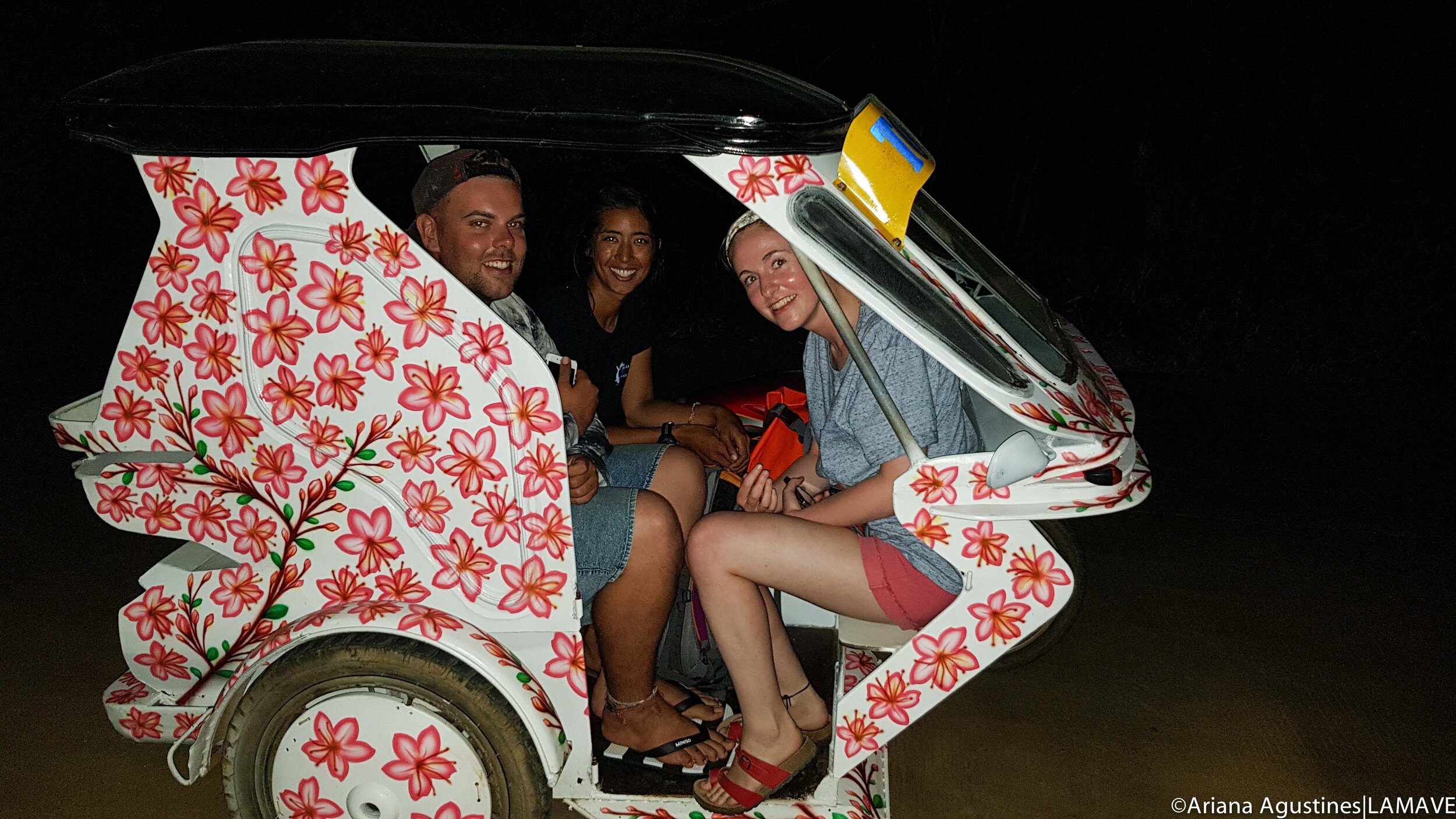
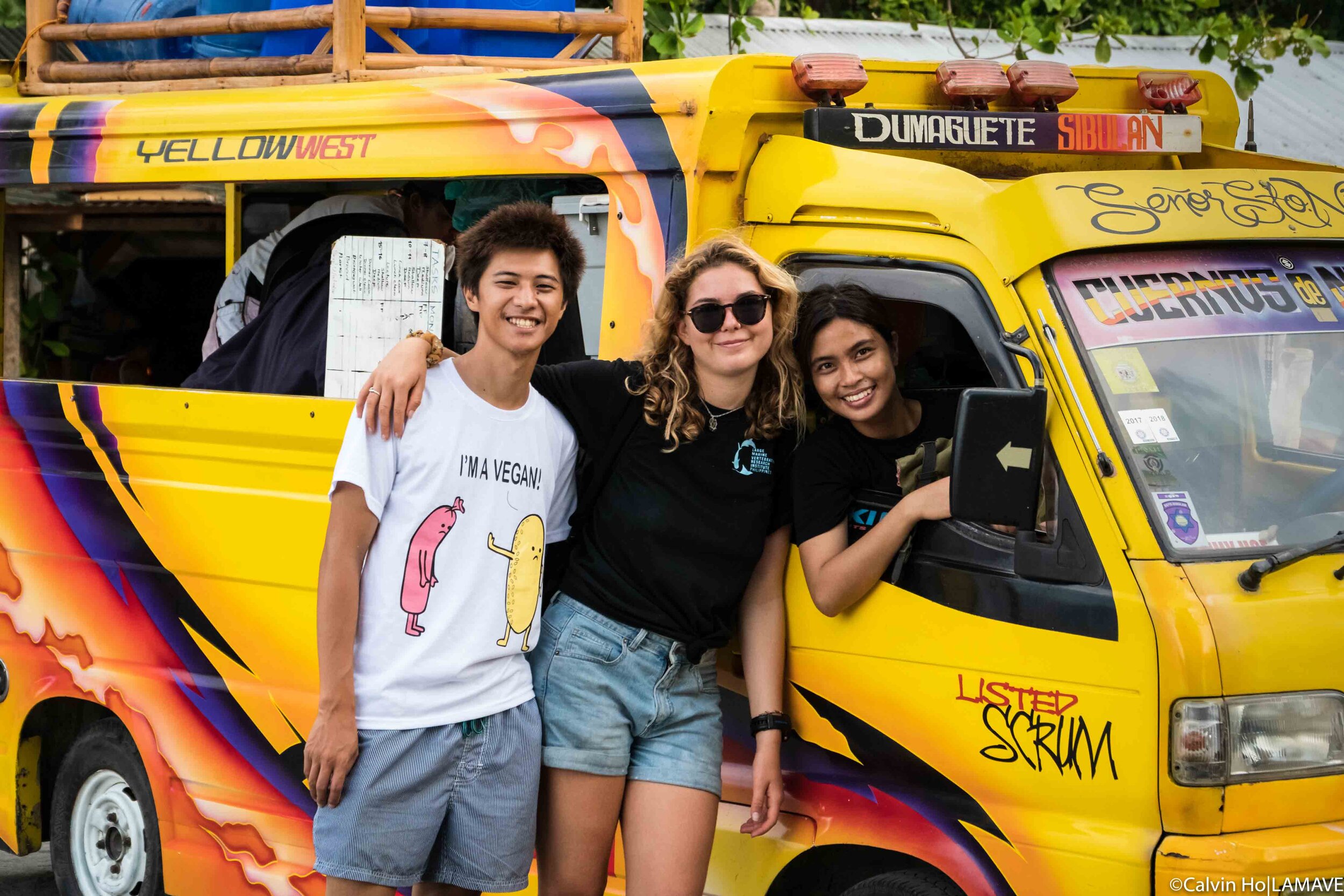
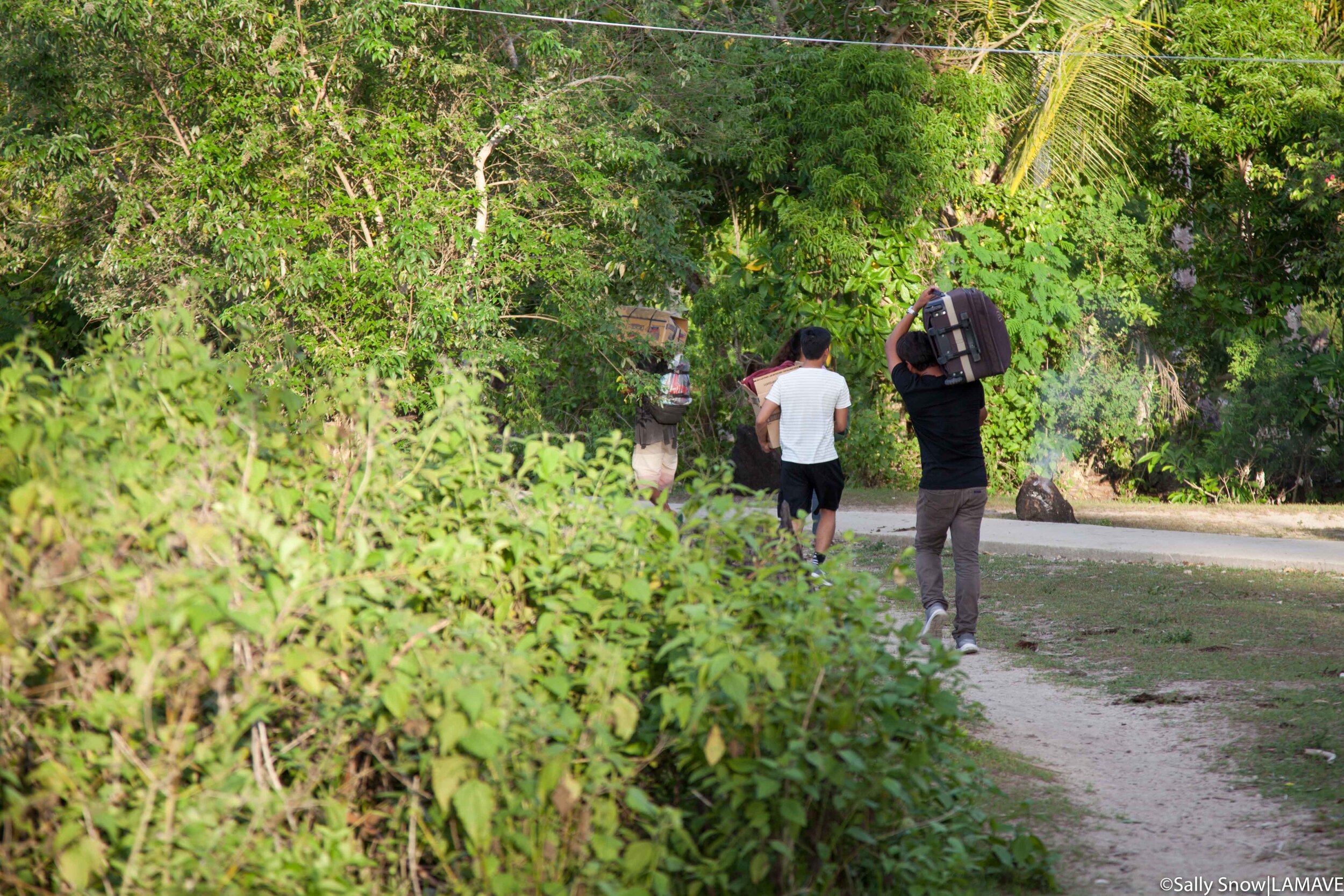
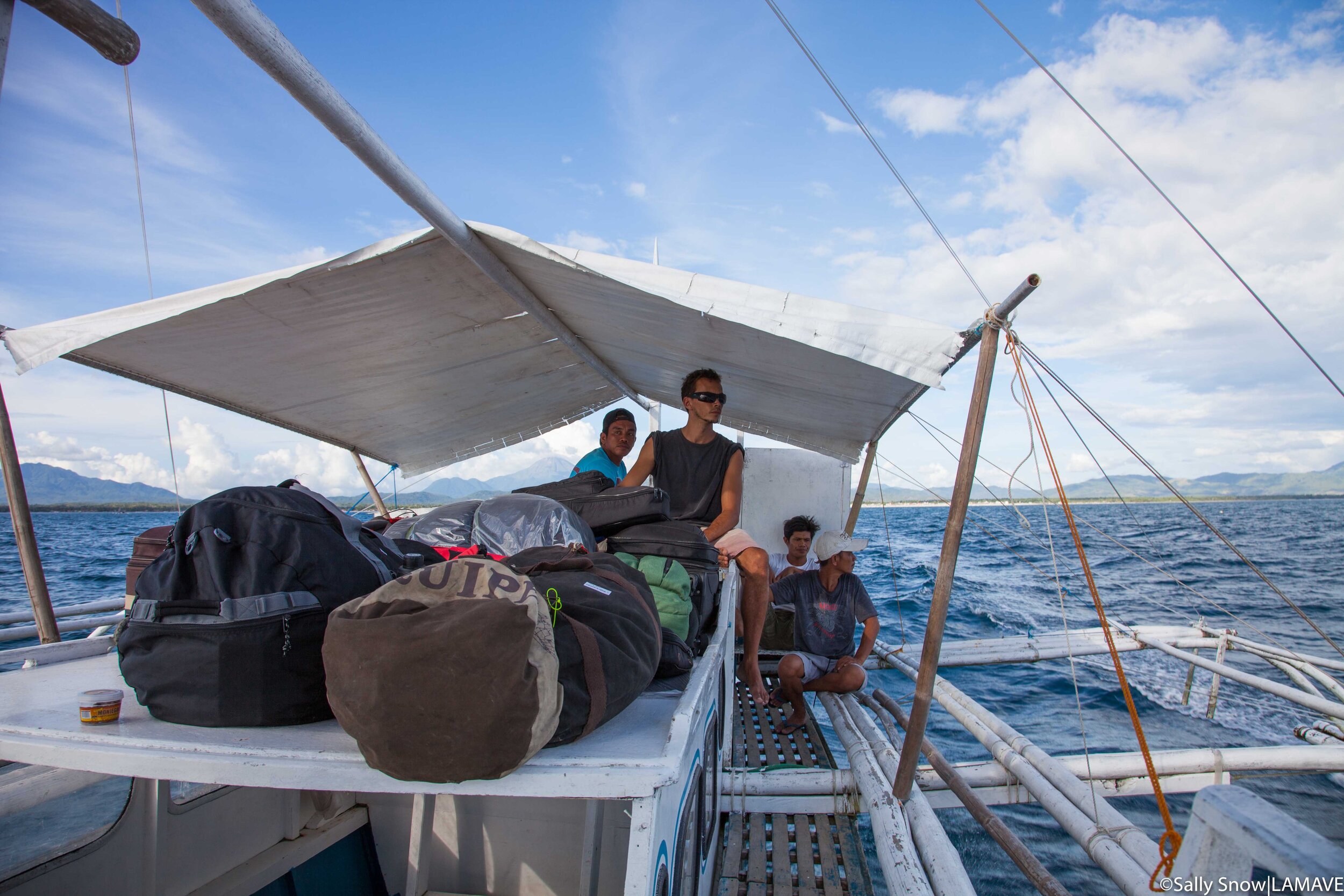
Skills
All our projects offer different skill training. As an active part of the research team you’ll be taught different skills that you’ll be required to use in the field. Living in a shared environment with an international team you’ll also learn some incredible life skills.
Project-specific research techniques include:
photo identification
citizen science
remote underwater video systems
compliance surveys
data cleaning
importance of cataloguing data correctly
Other Skills you’ll learn:
Teamwork and Collaboration
communication
team building
community engagement (when the project hosts public events)
Professionalism
Global Fluency & Perspective
Leadership
Problem solving and adaptability
Time management
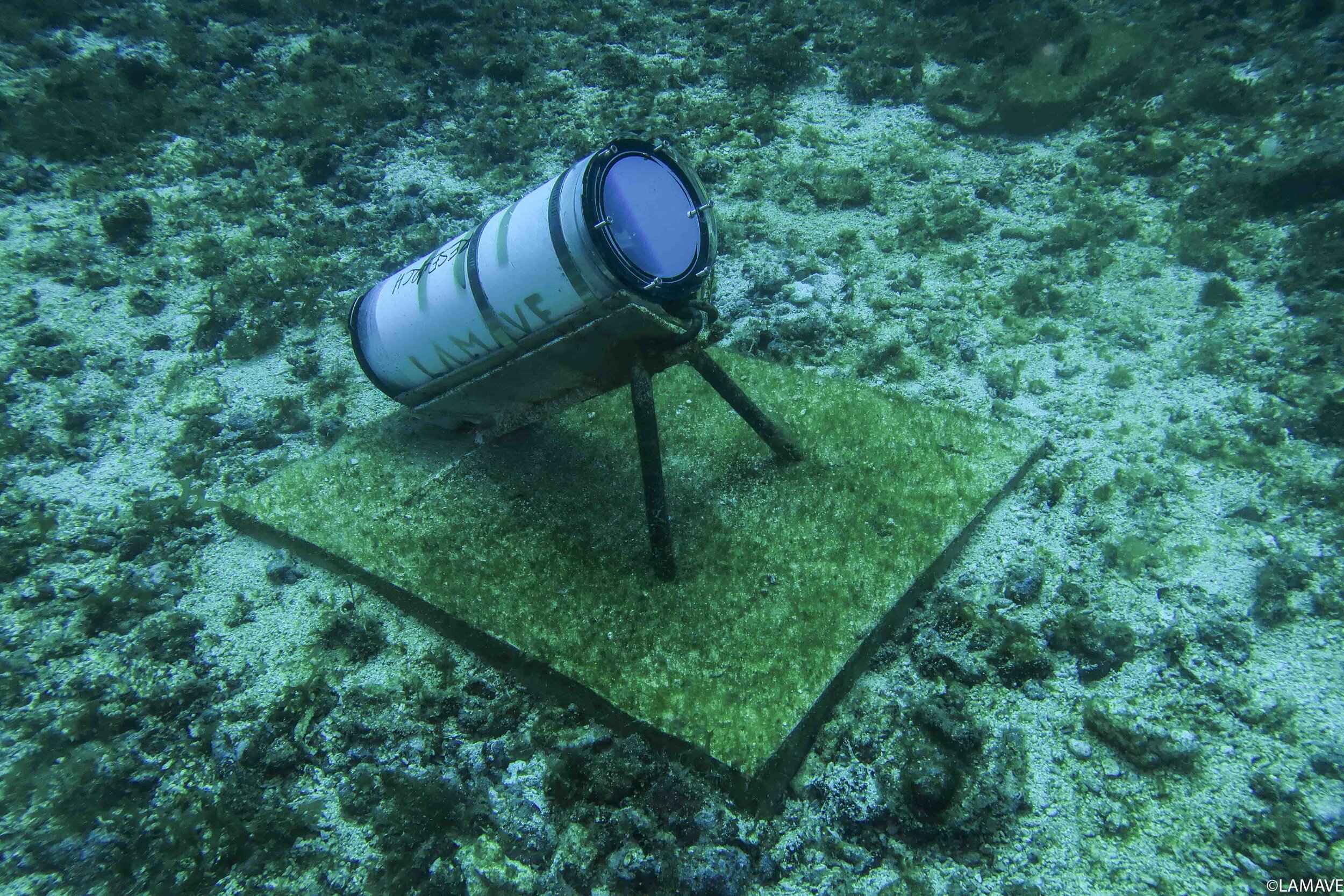
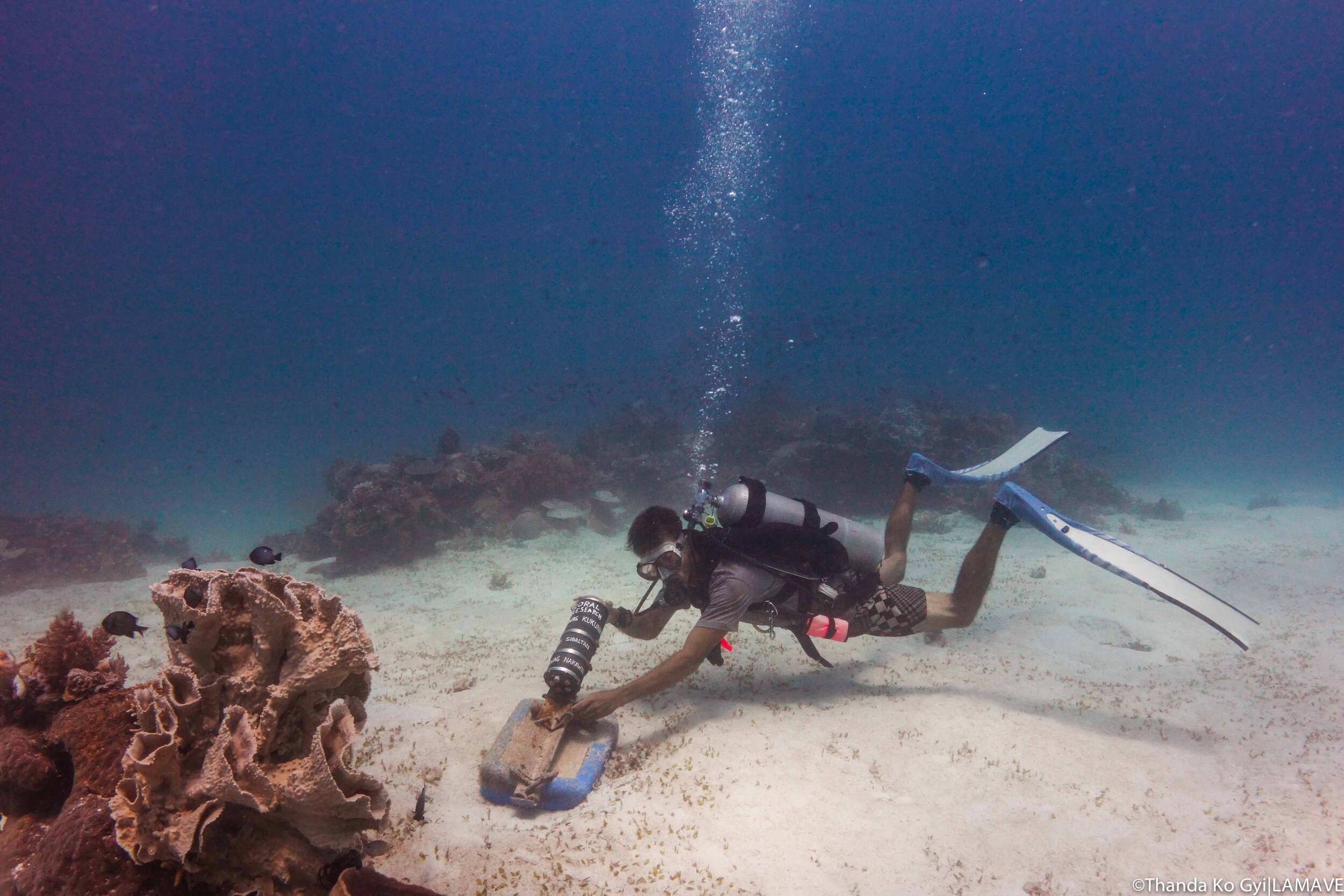
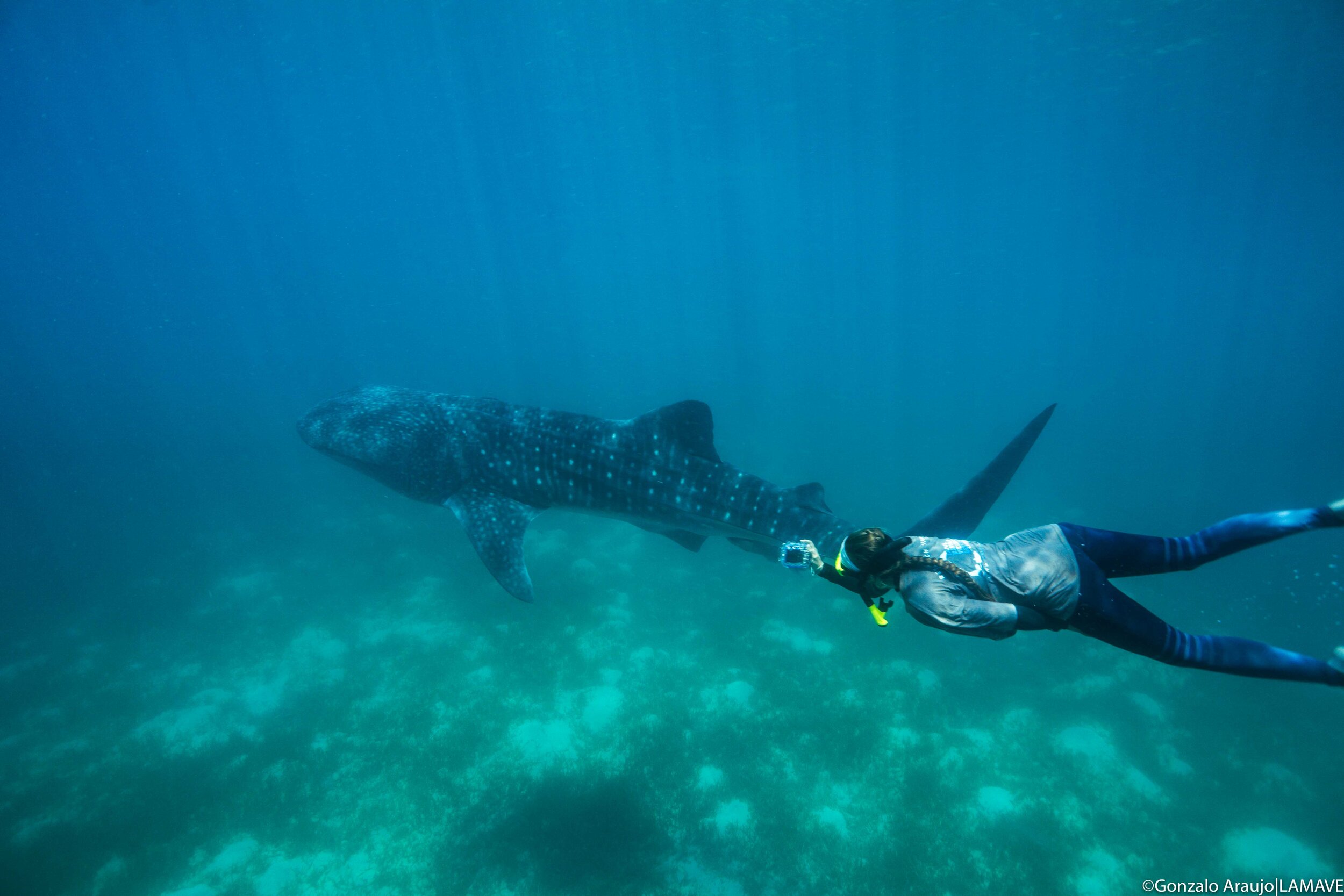
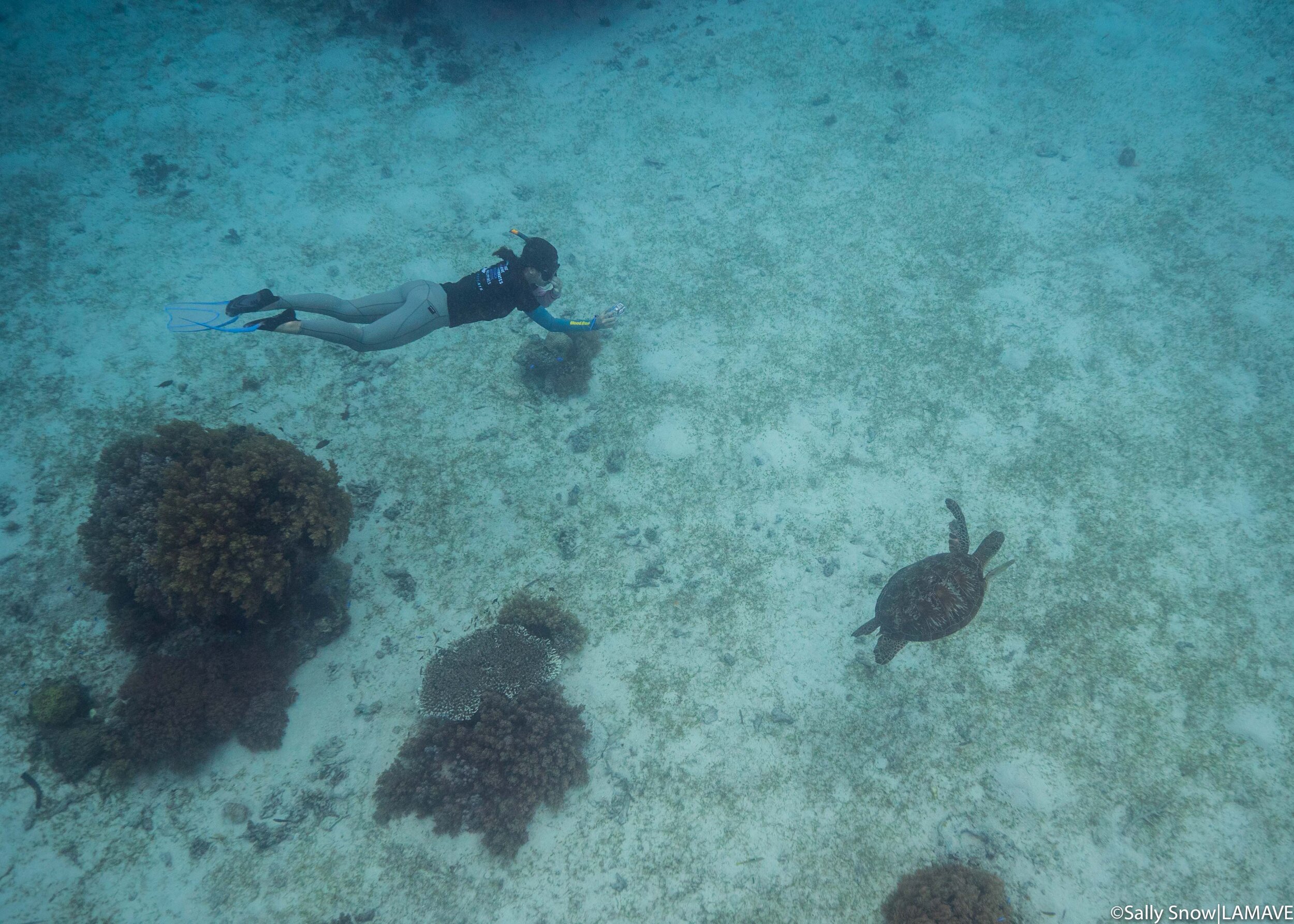
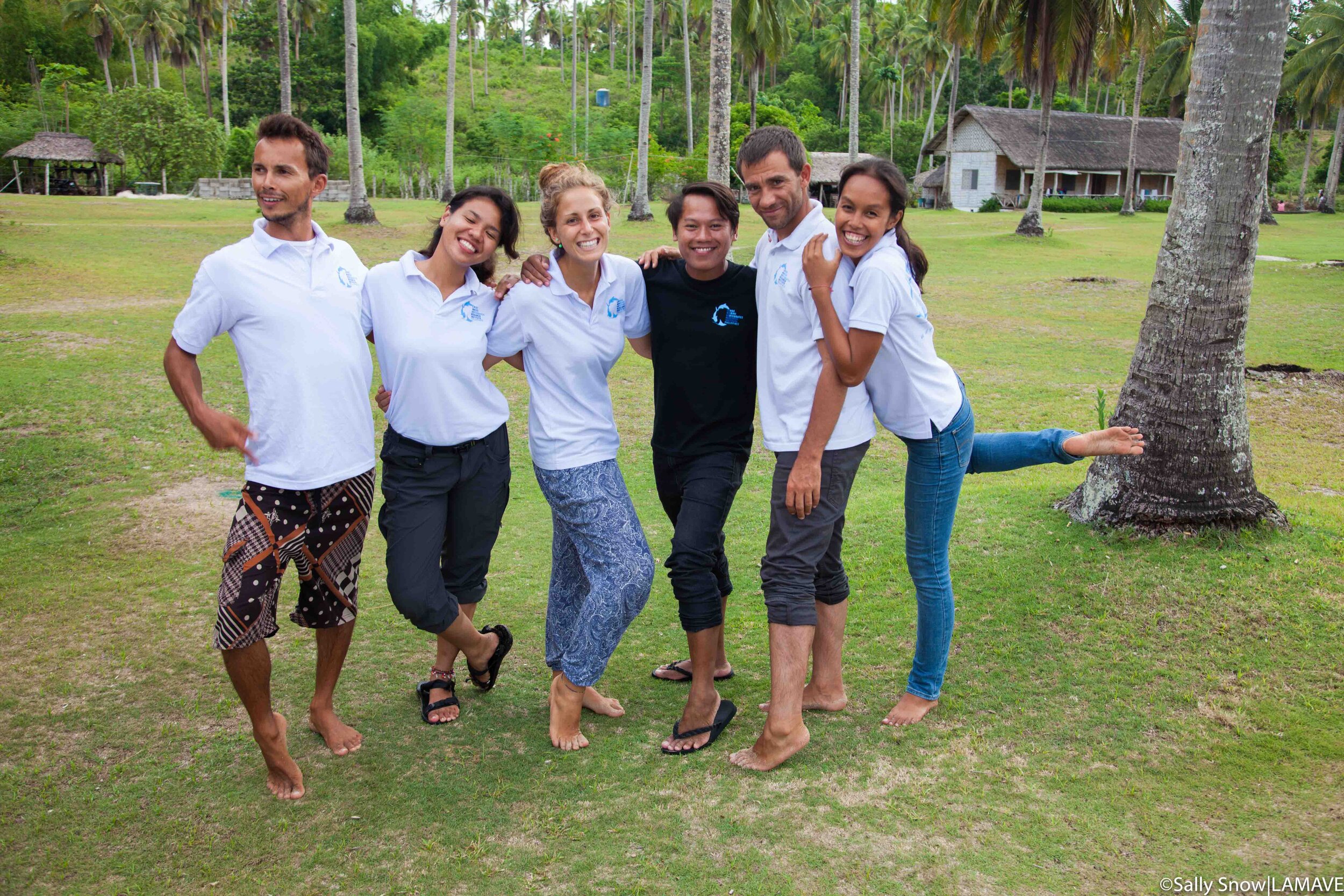
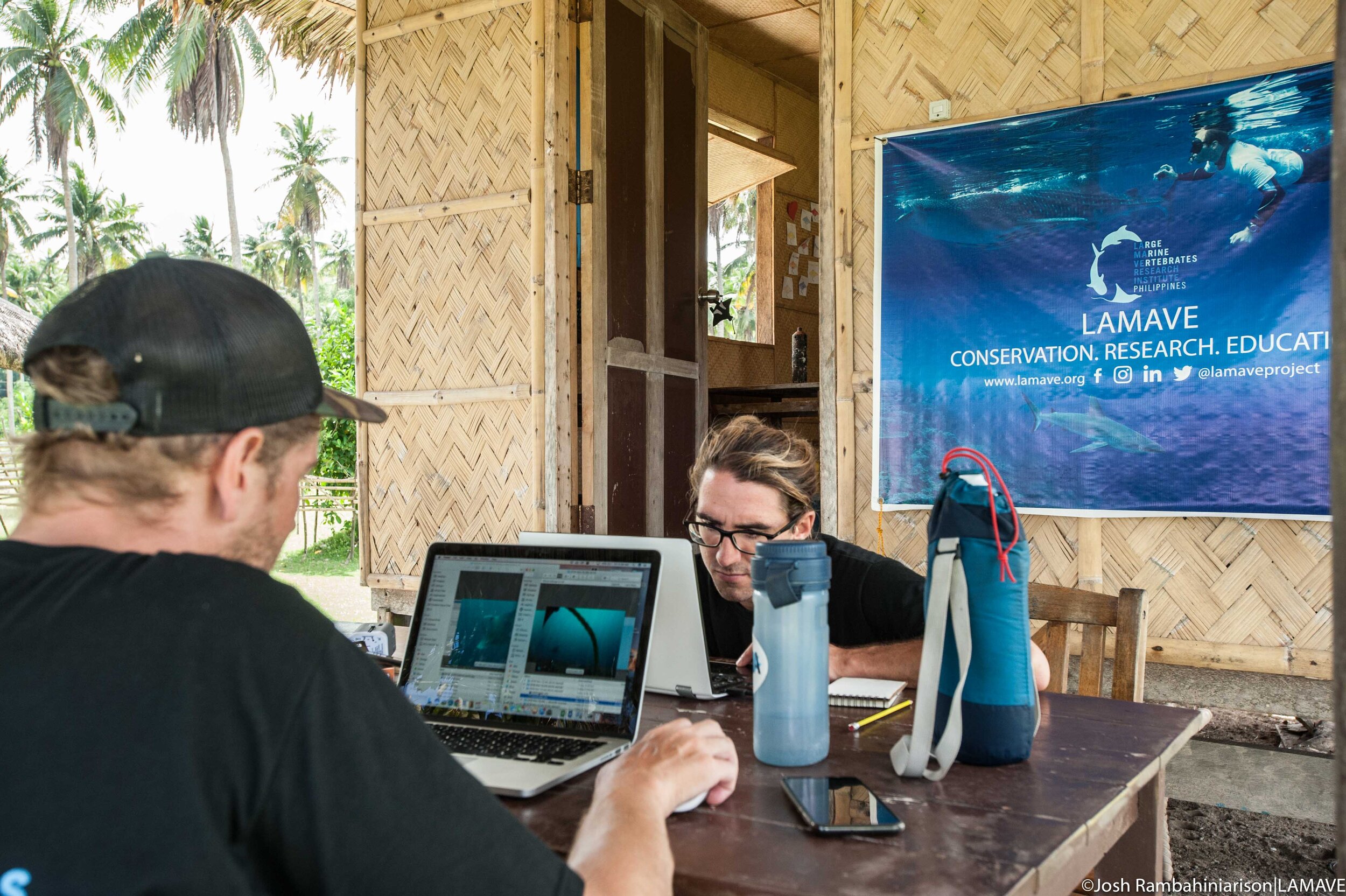
Responsibilities
What LAMAVE takes care of:
Project logistics and safety
Field equipment for research - this differs per site, but can refer to cameras for photo-identification, GPS, Remote Underwater Video Systems
Training in research methods
3 meals a day and shared accommodation in the project house
Daily transport related to project activities
LAMAVE uniform (T-shirt, in-water shirt)
You are responsible for the following:
Medical Insurance (this is required for the placement. For scuba diving based research projects your insurance must cover scuba diving)
Flights to the project site
Activities on your day off
Snacks and luxury items
Diving gear for the scuba based projects (BCD, regulator, dive computer)
Free diving fins, mask and snorkel for free diving based projects
Gallery
“This is honestly one of the best and definitely most new/crazy experiences of my life.”
